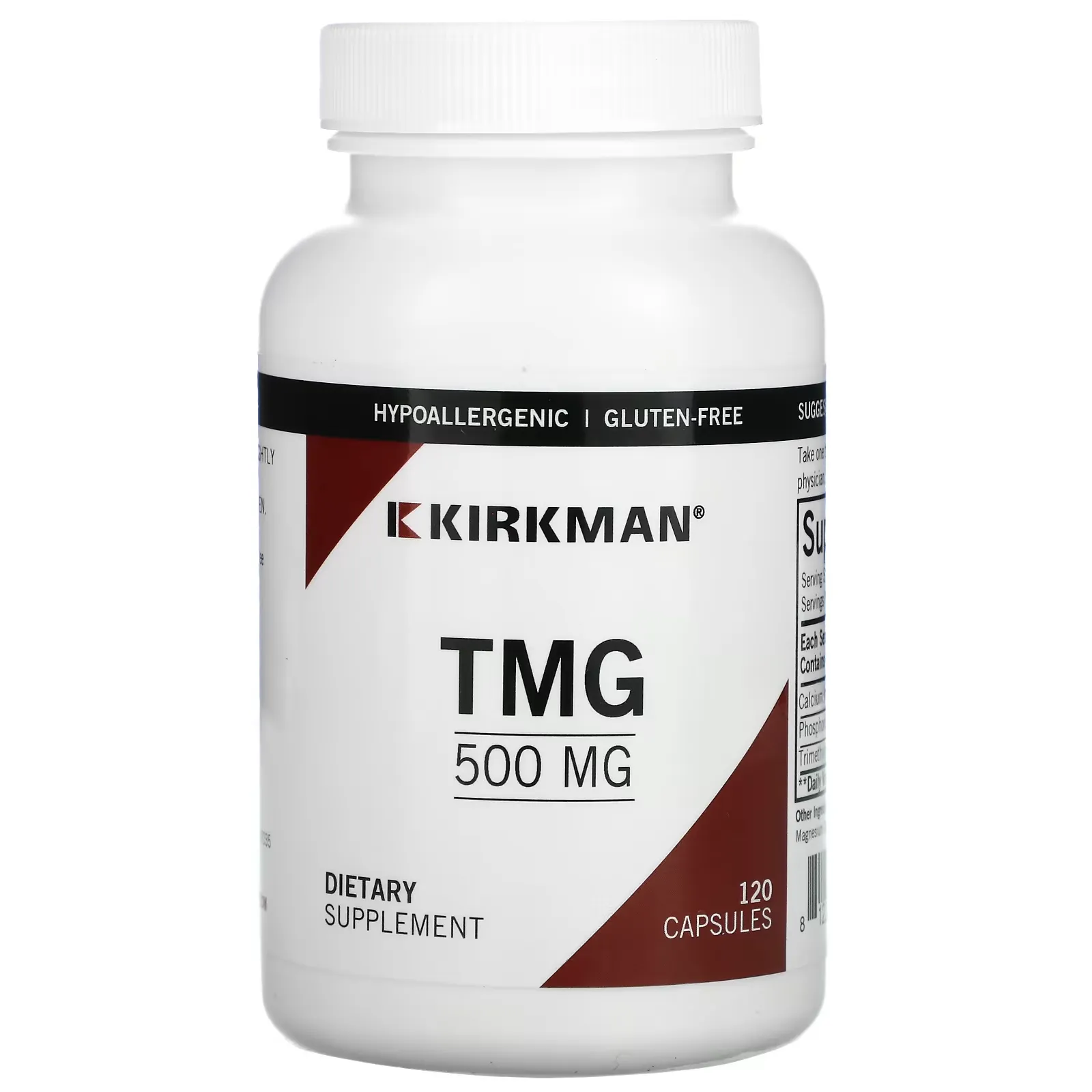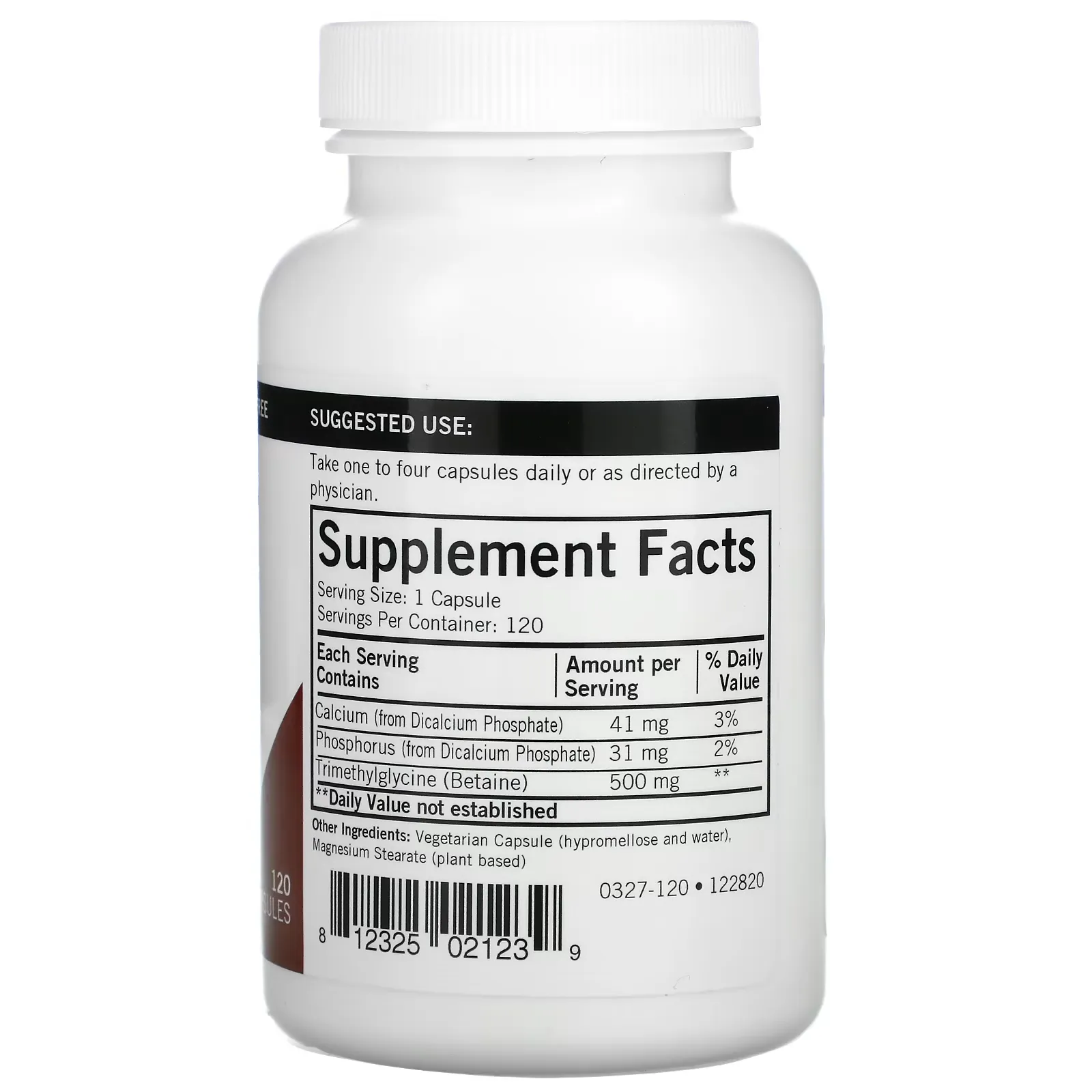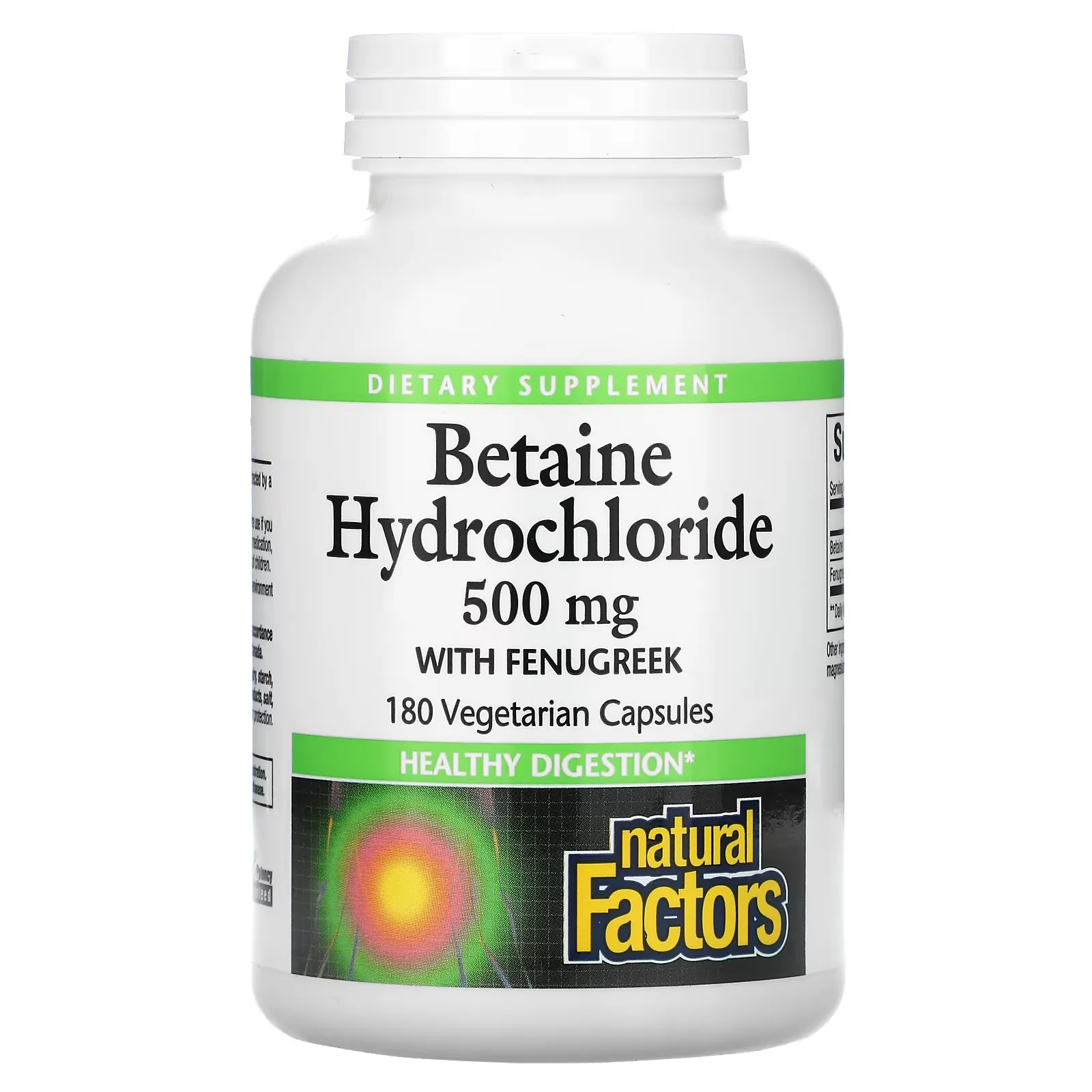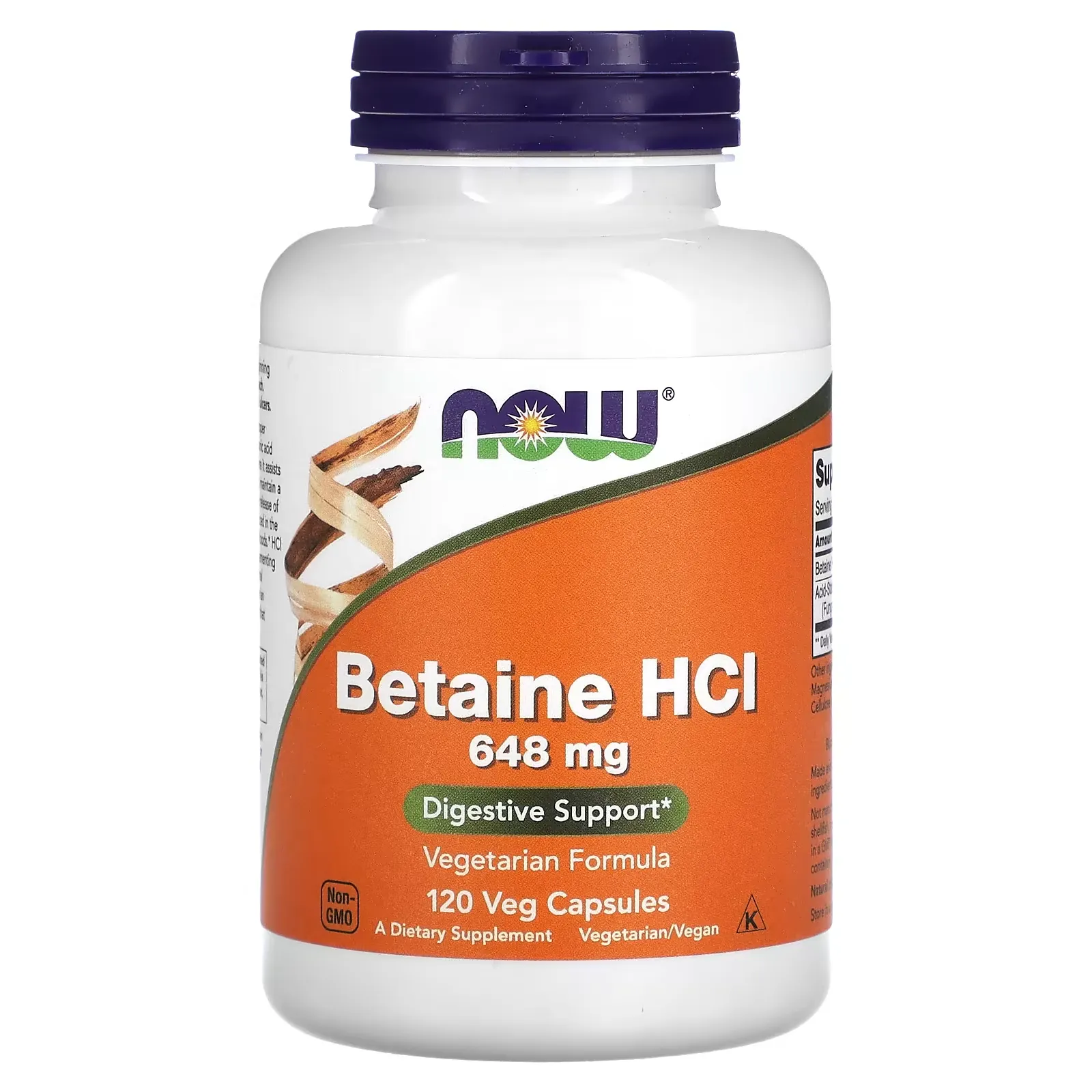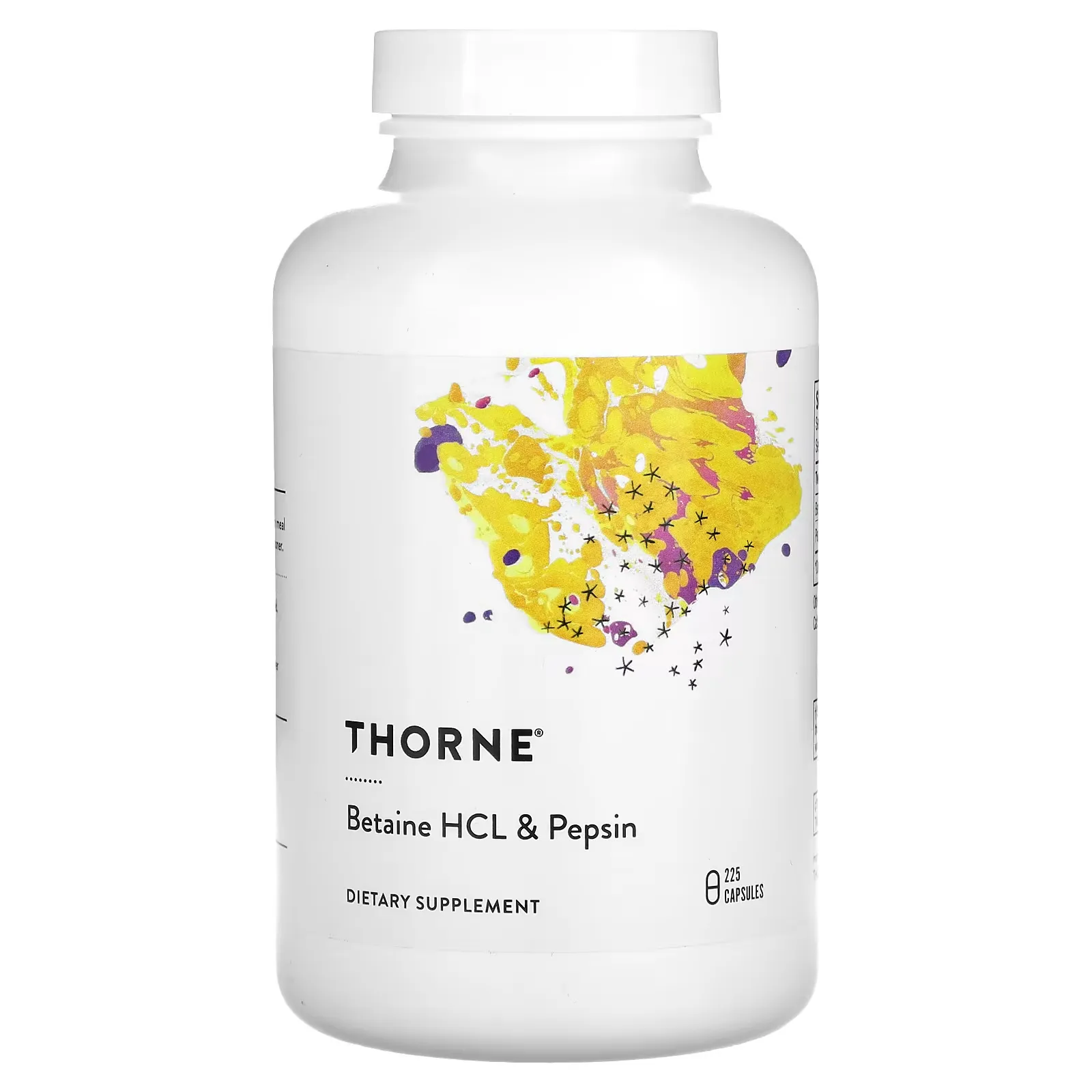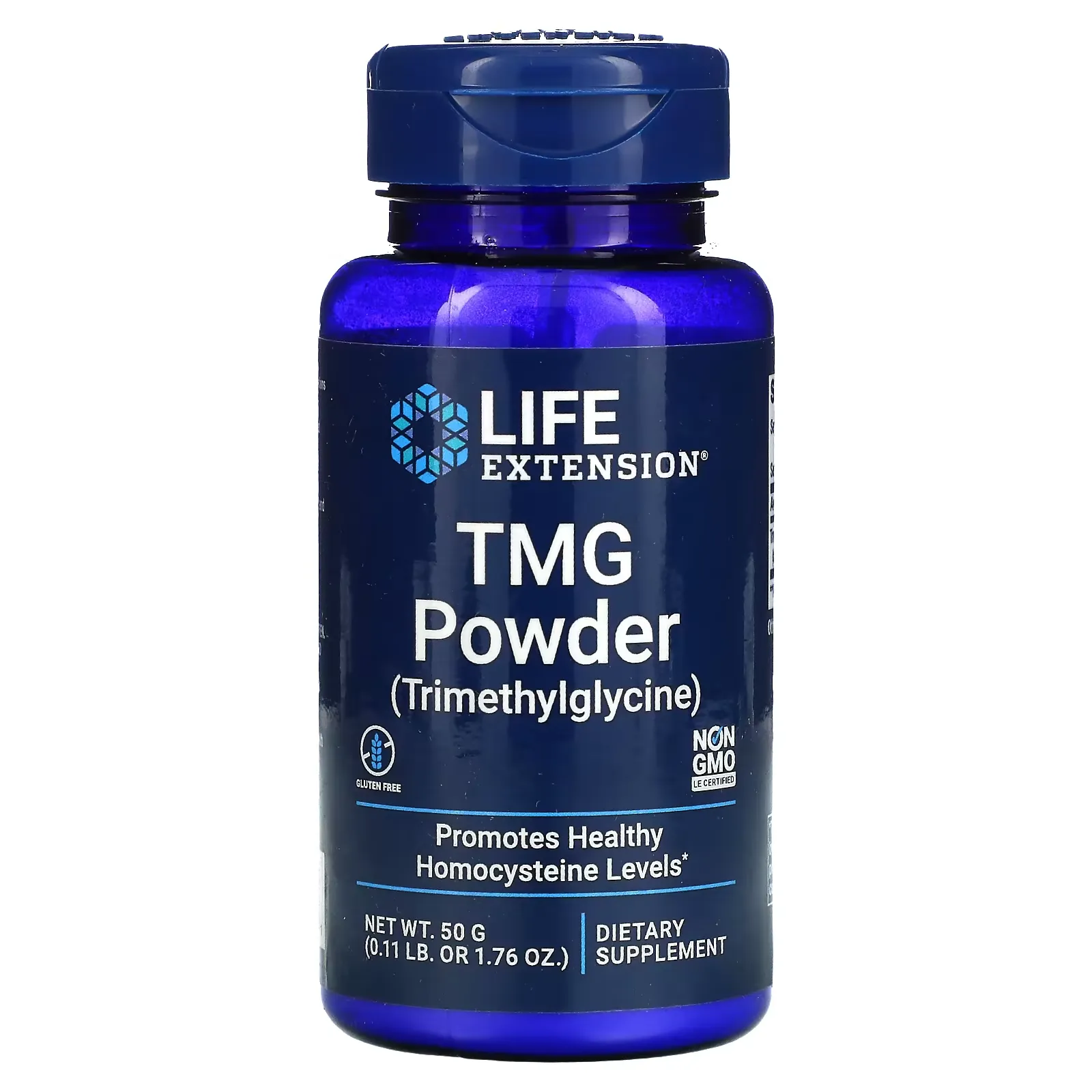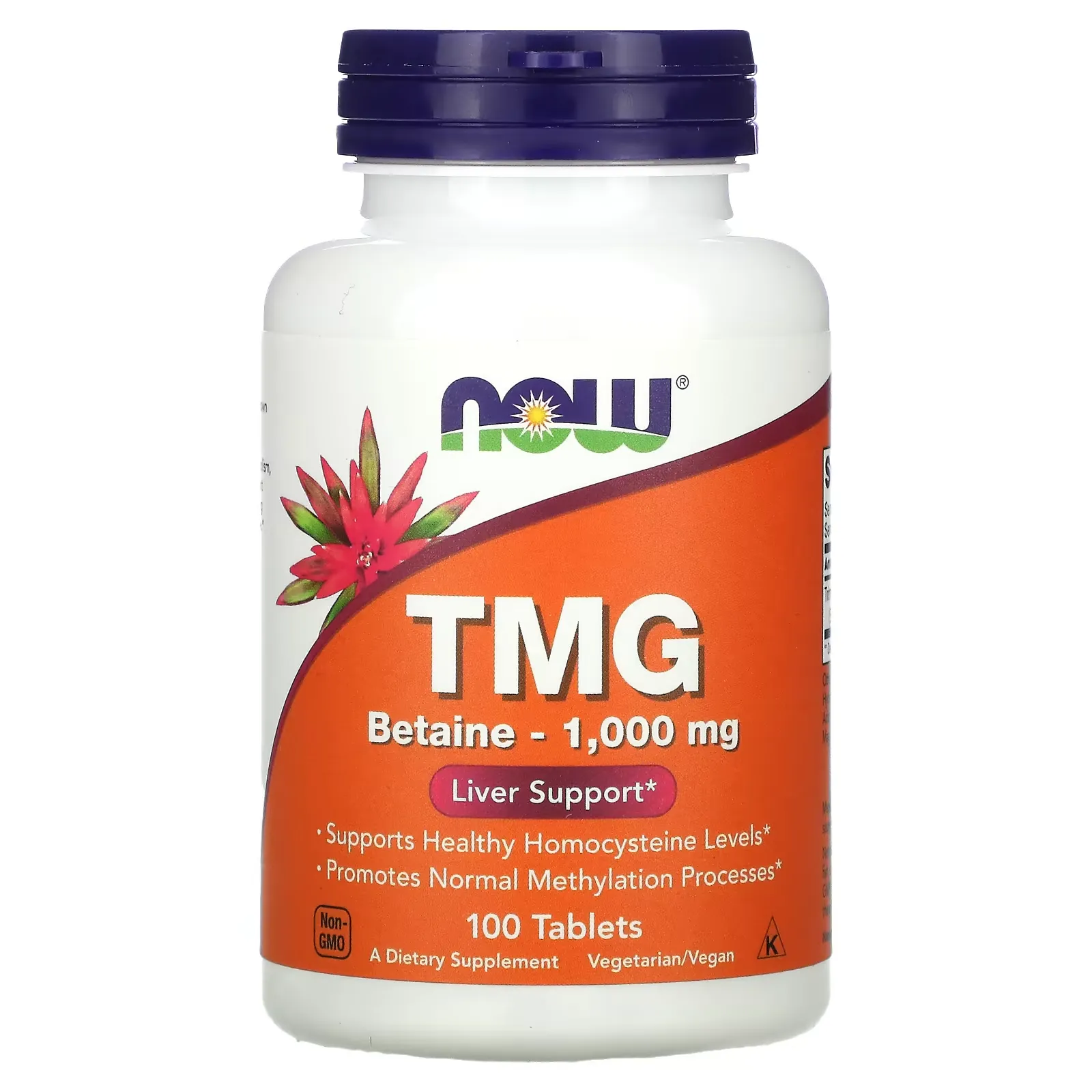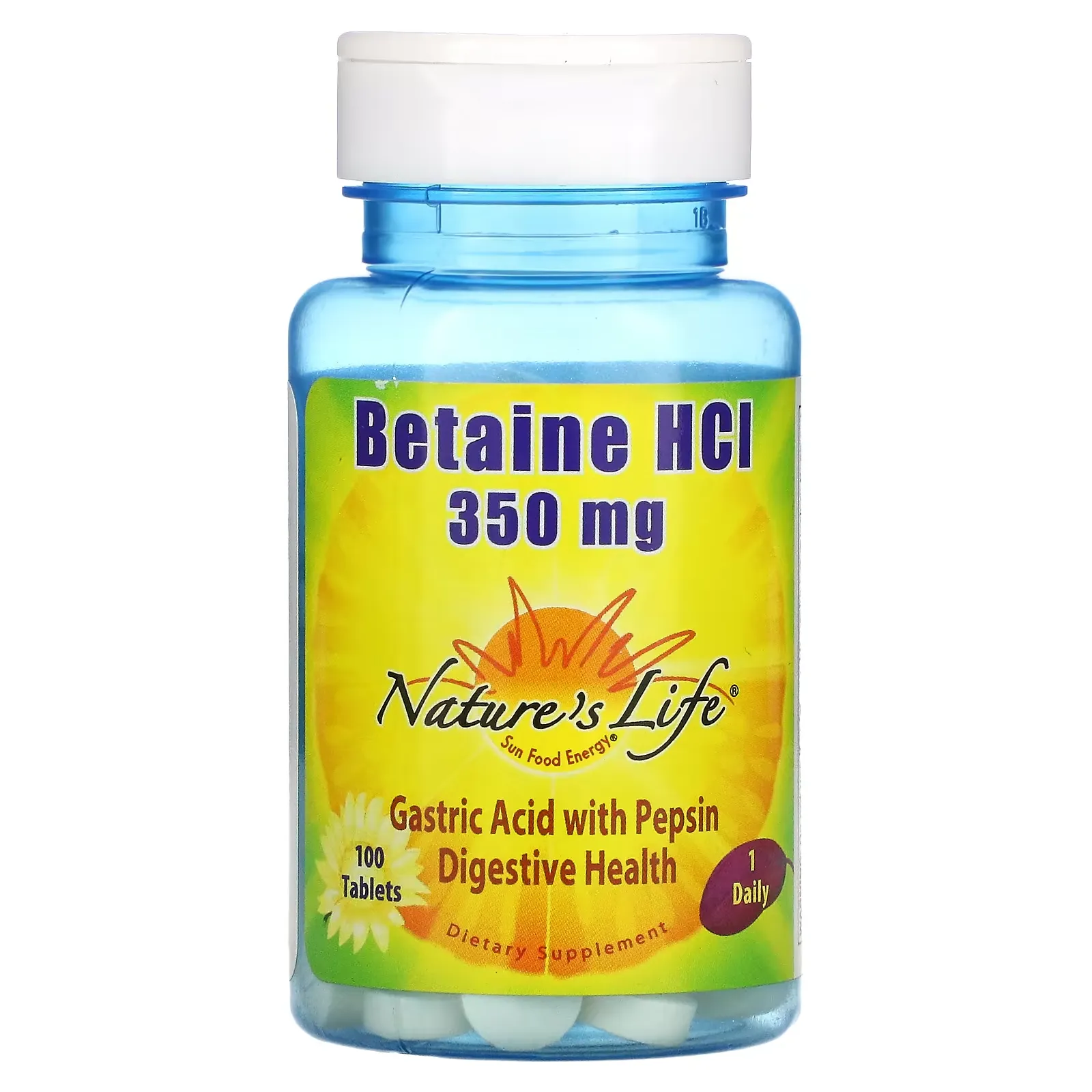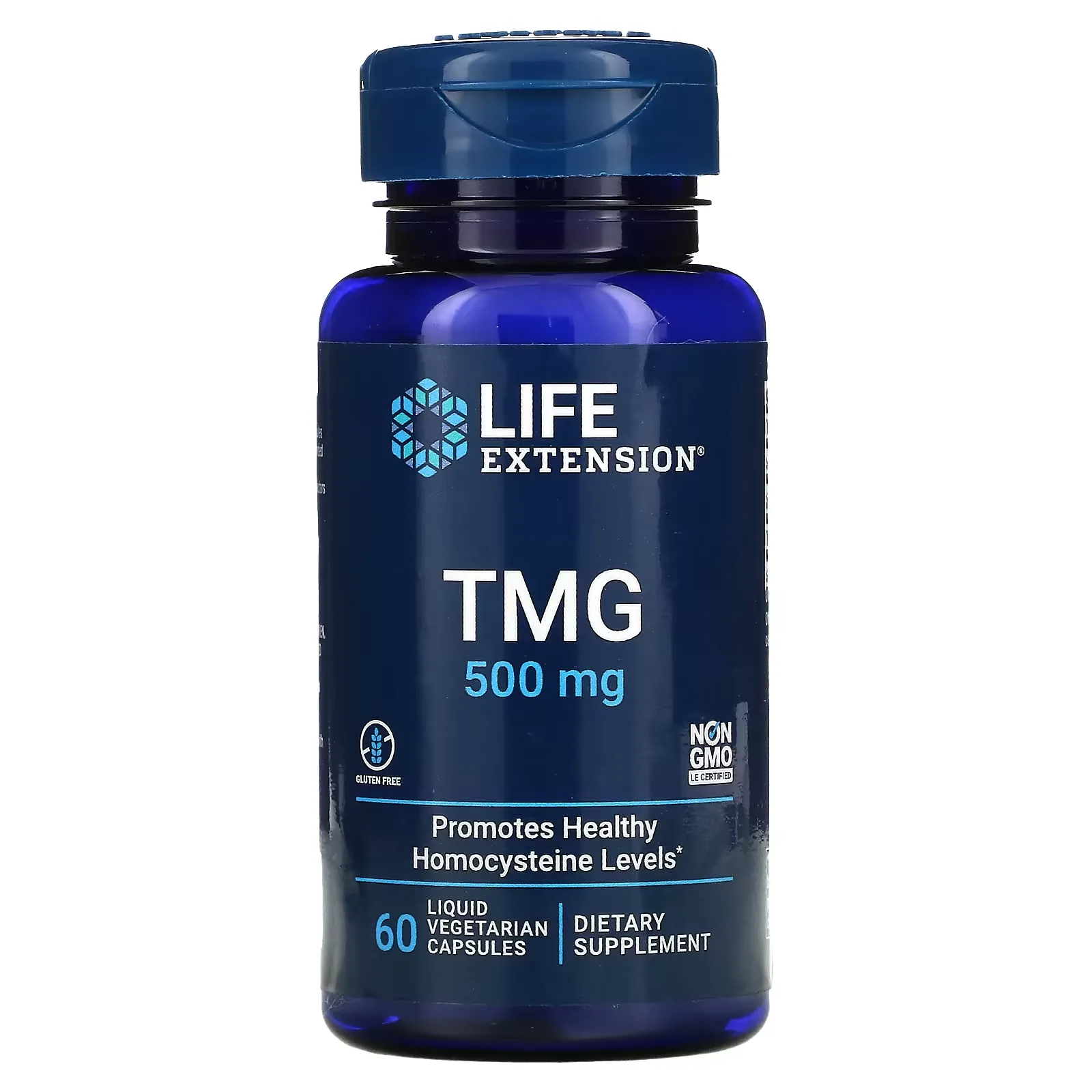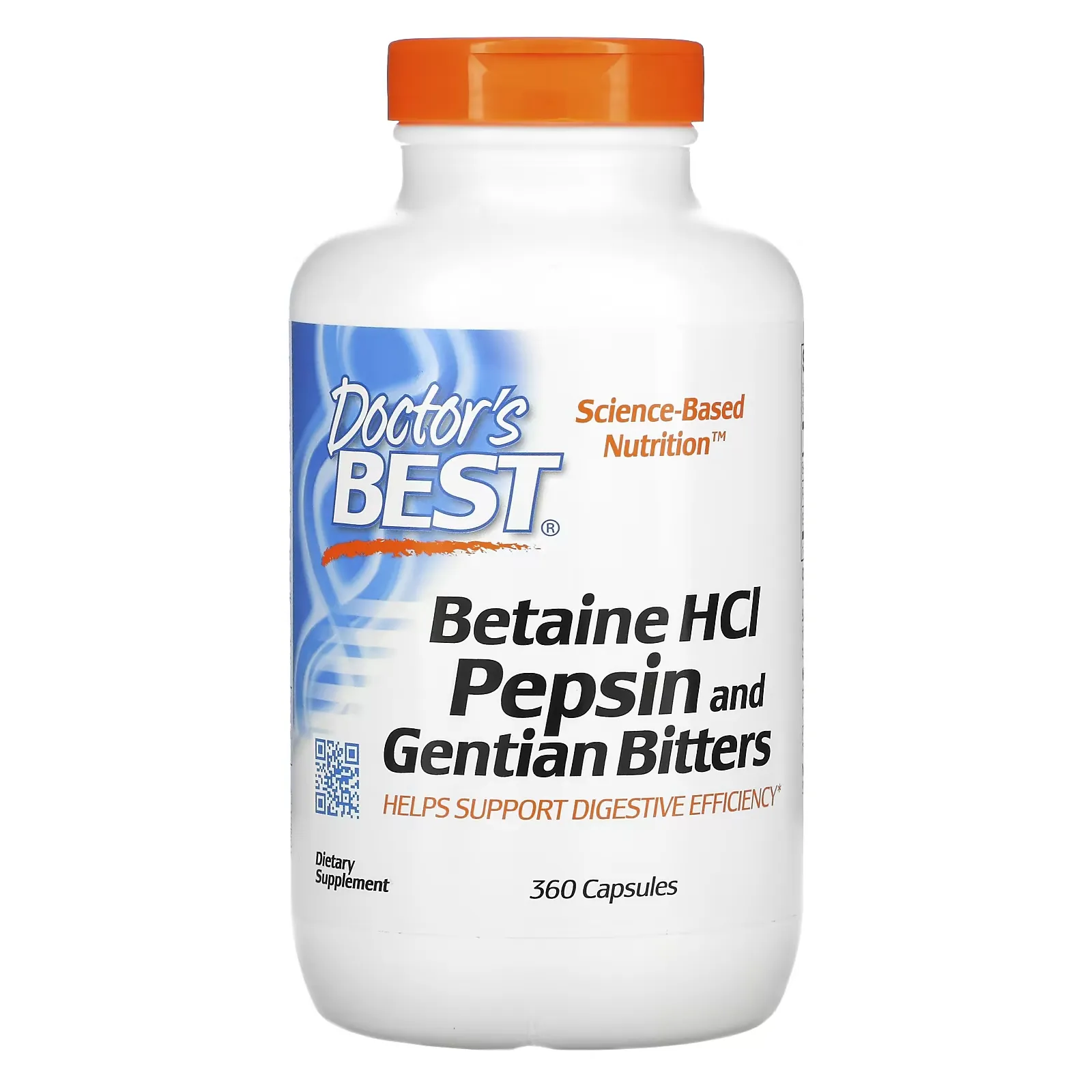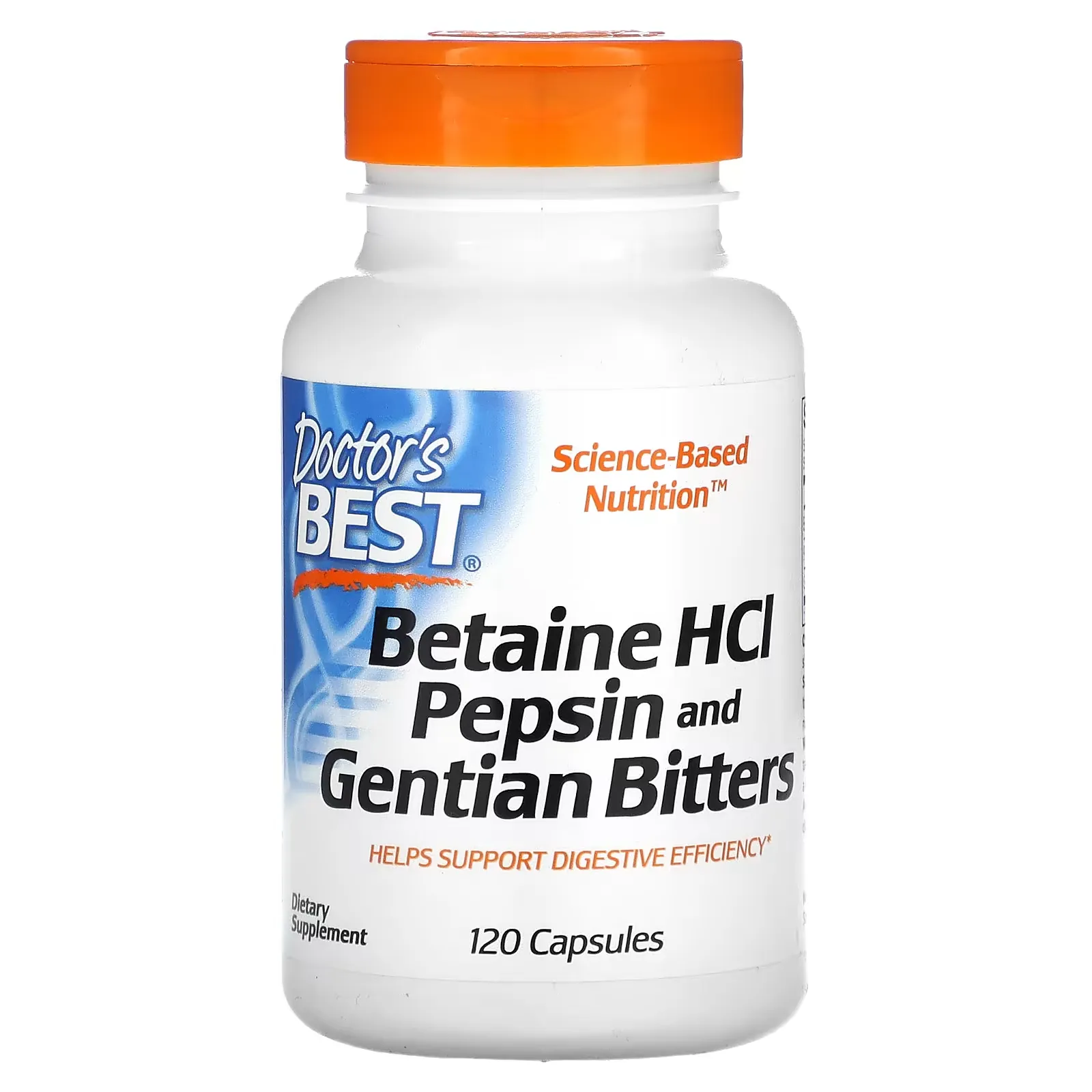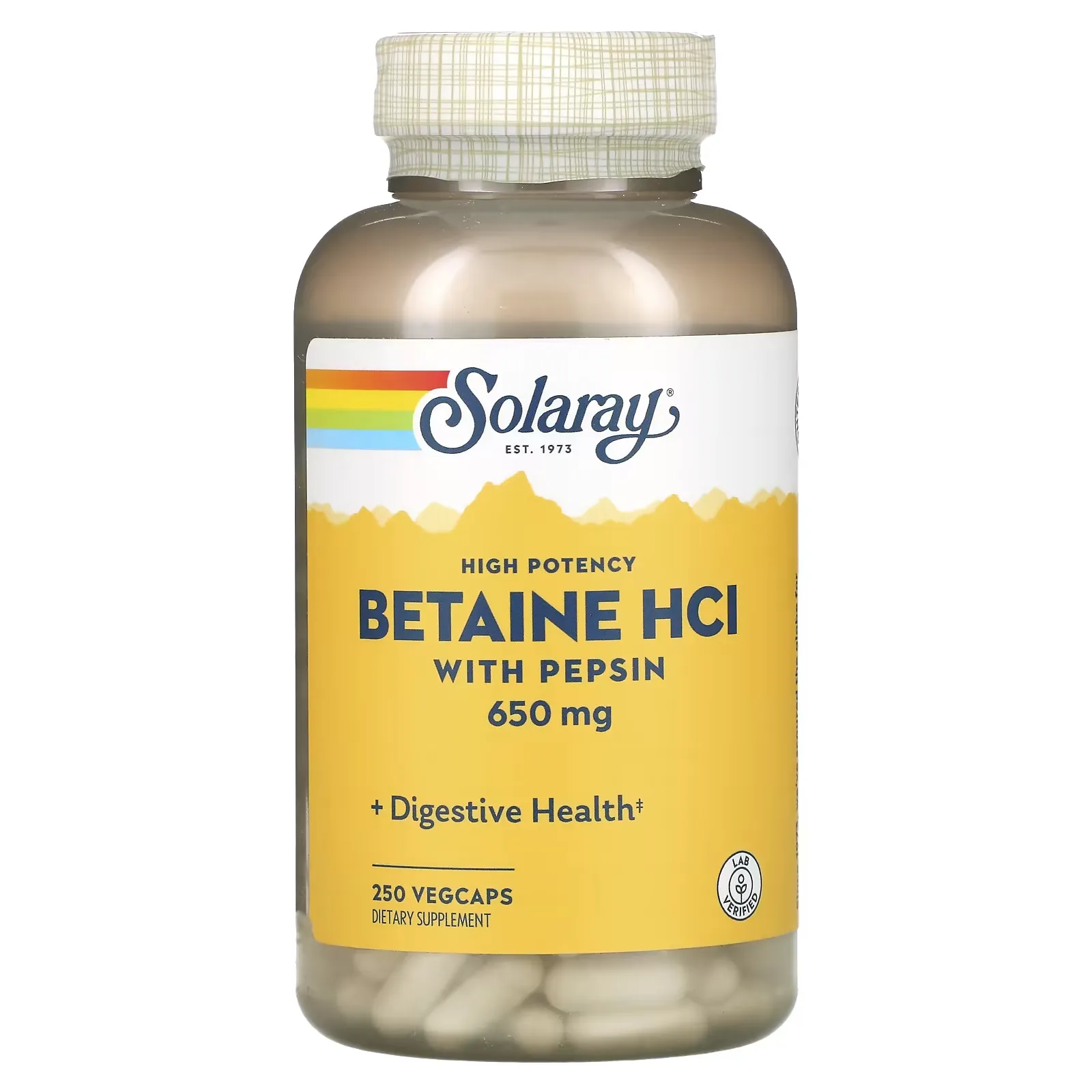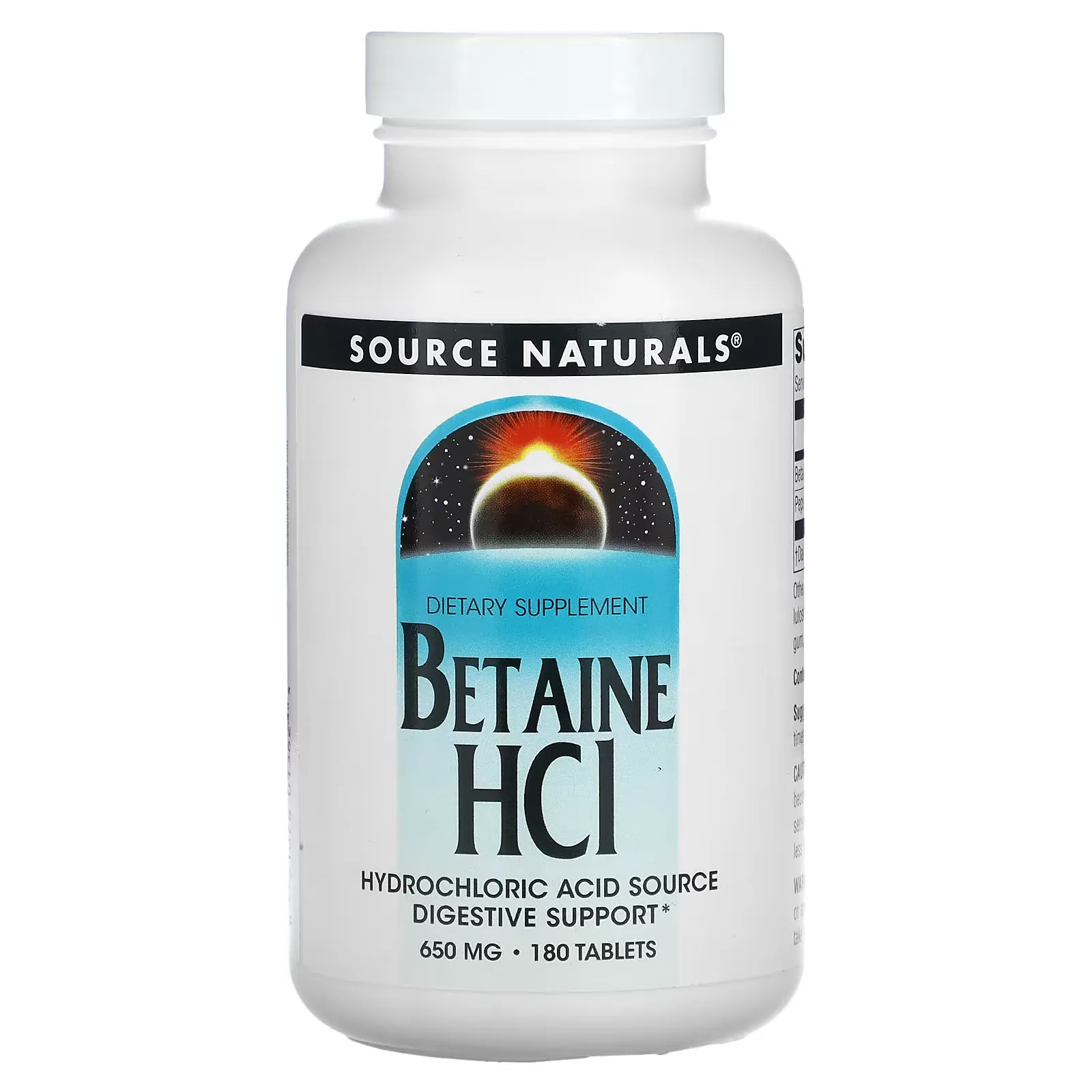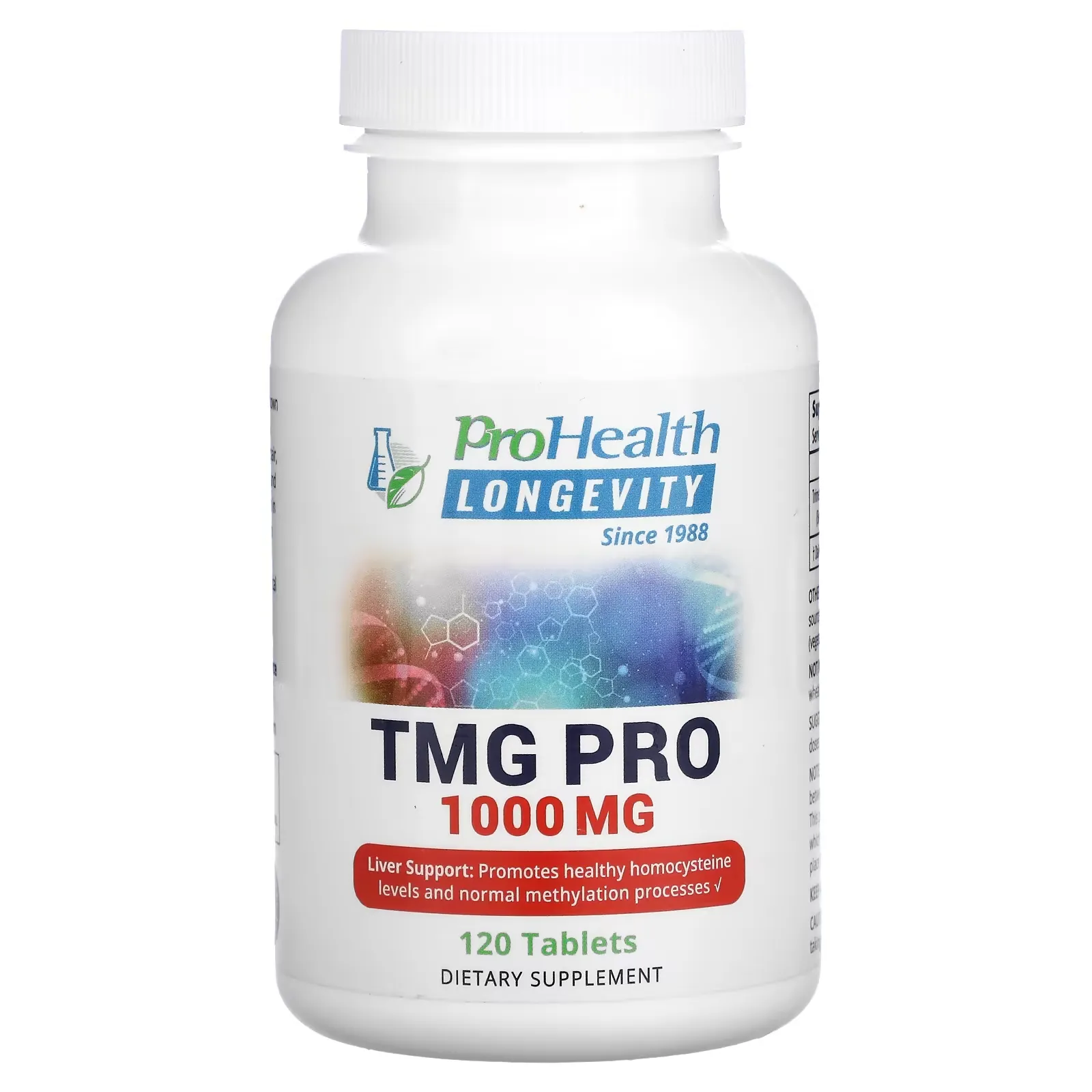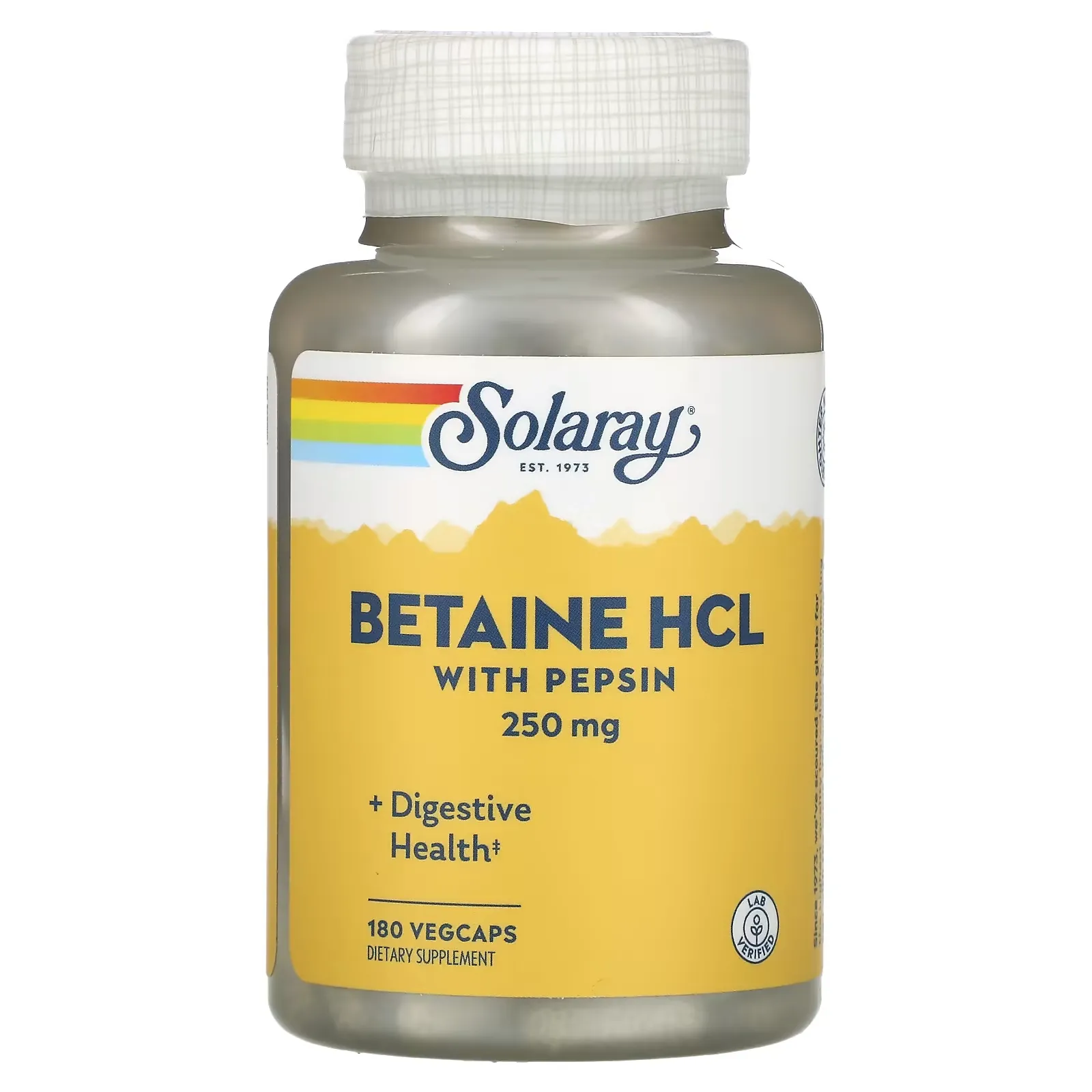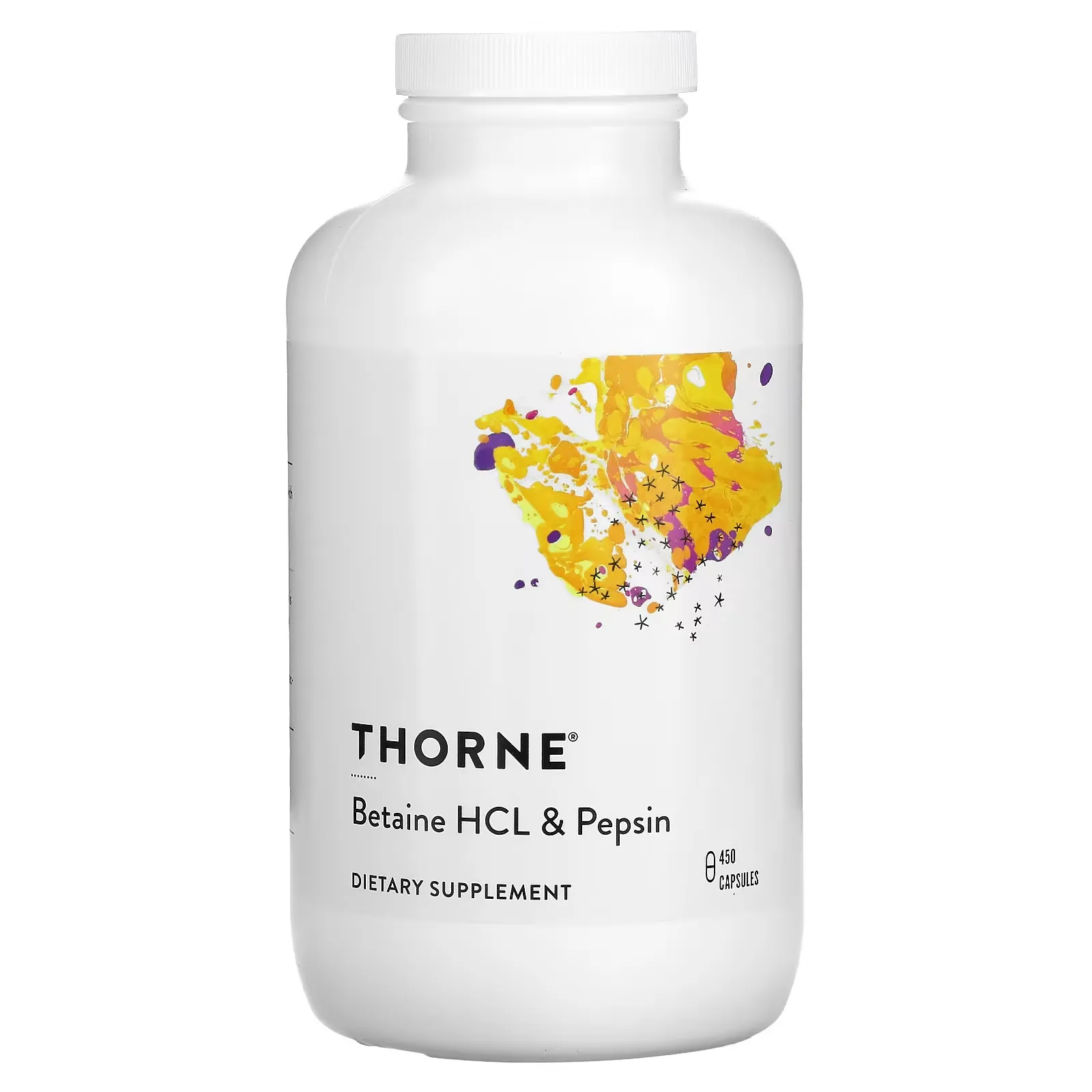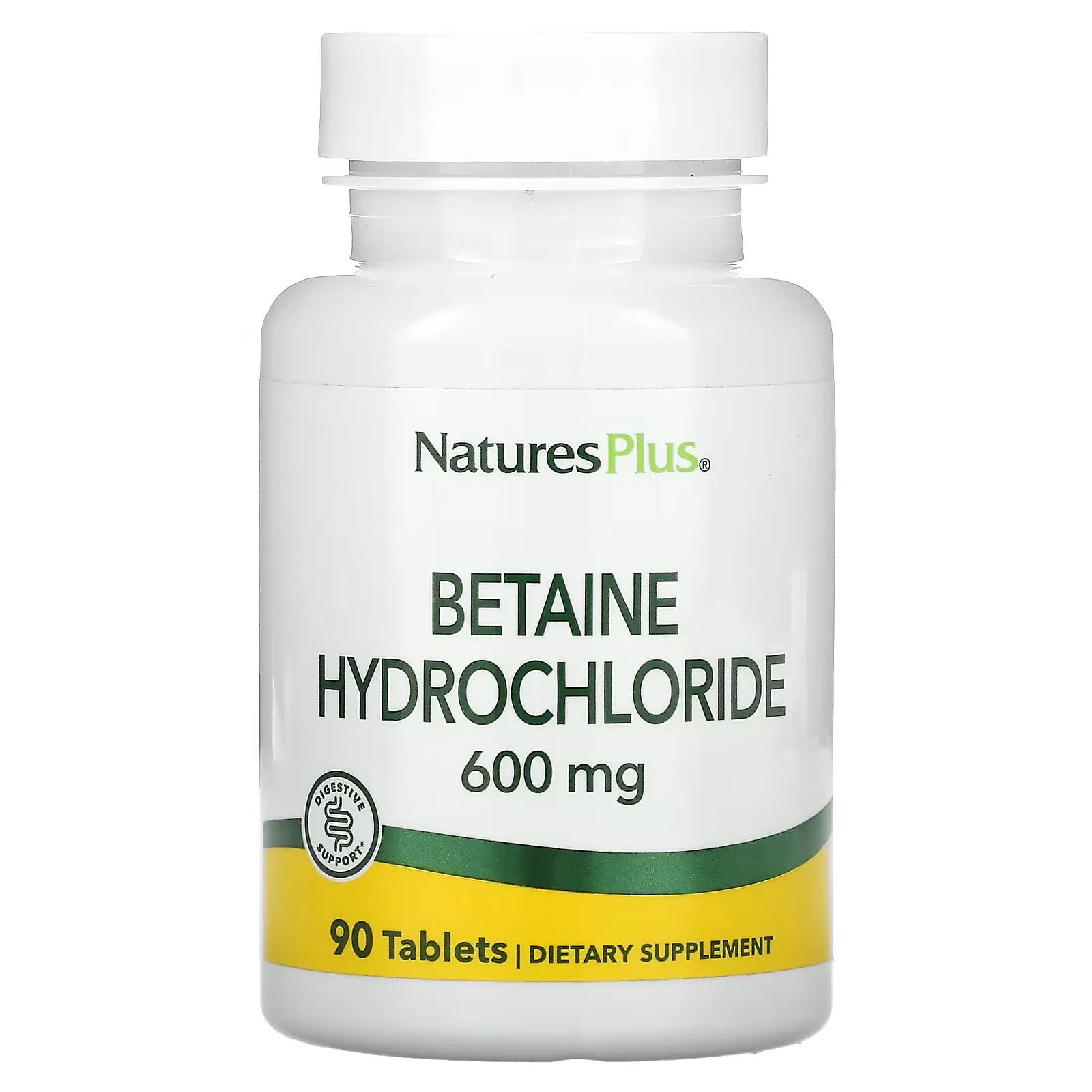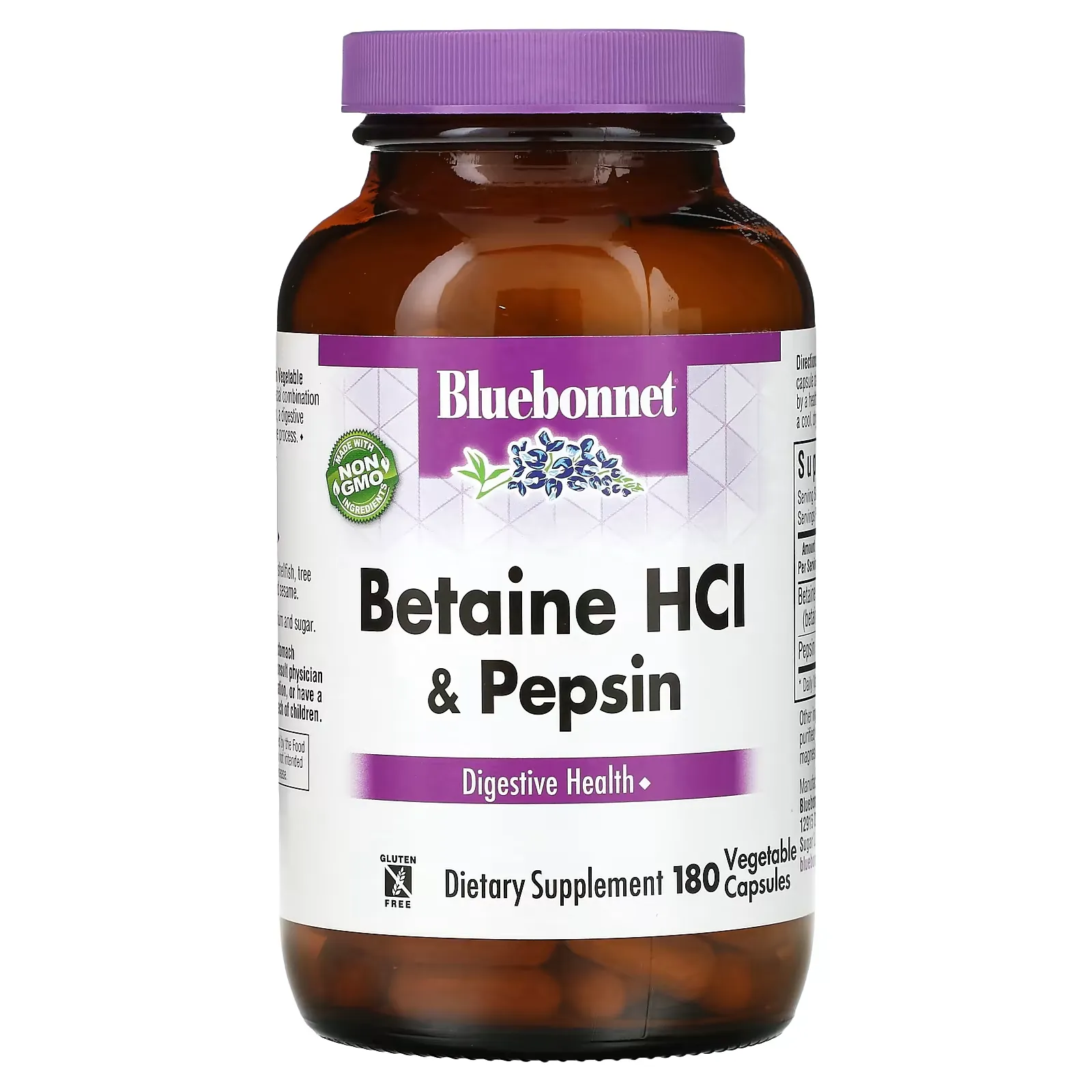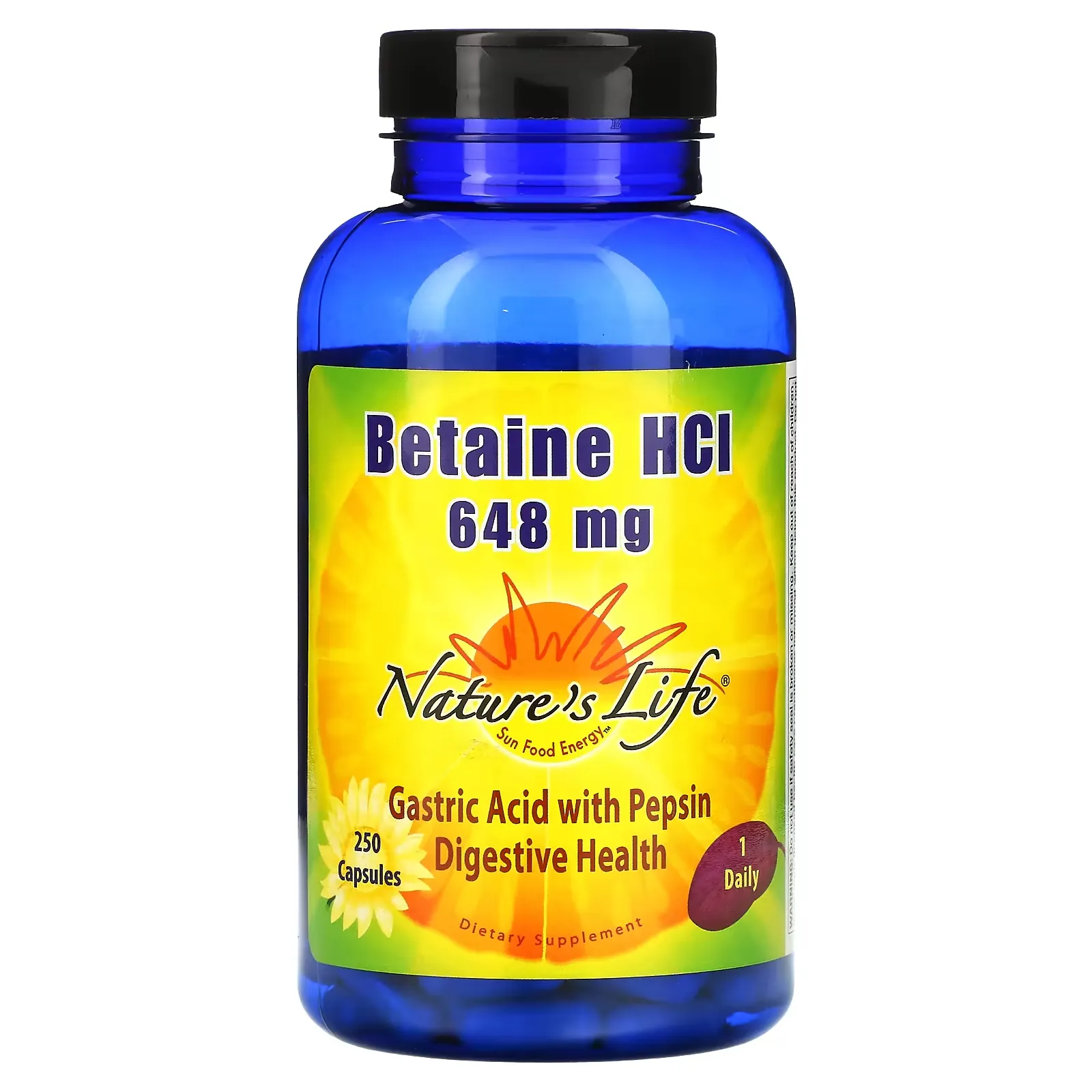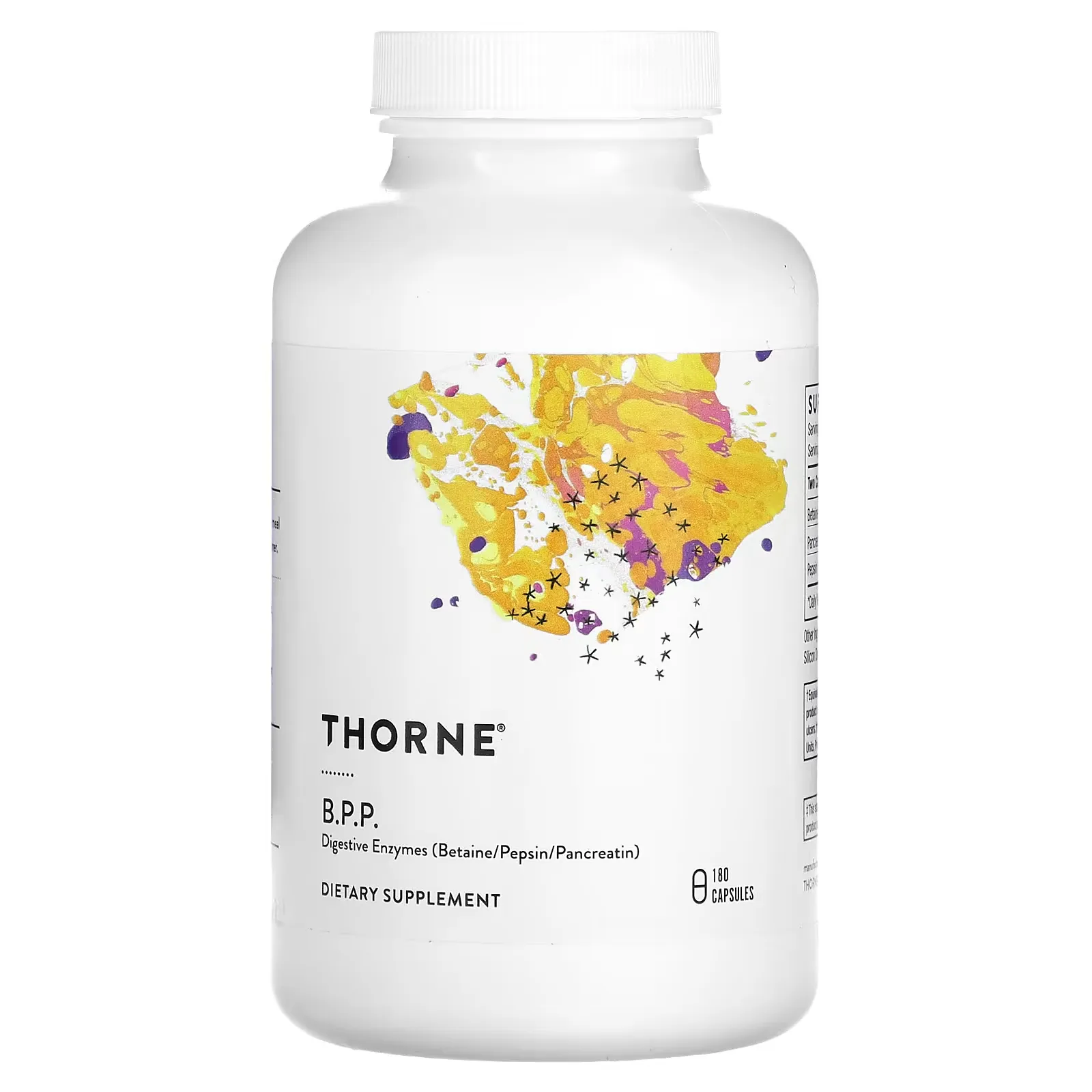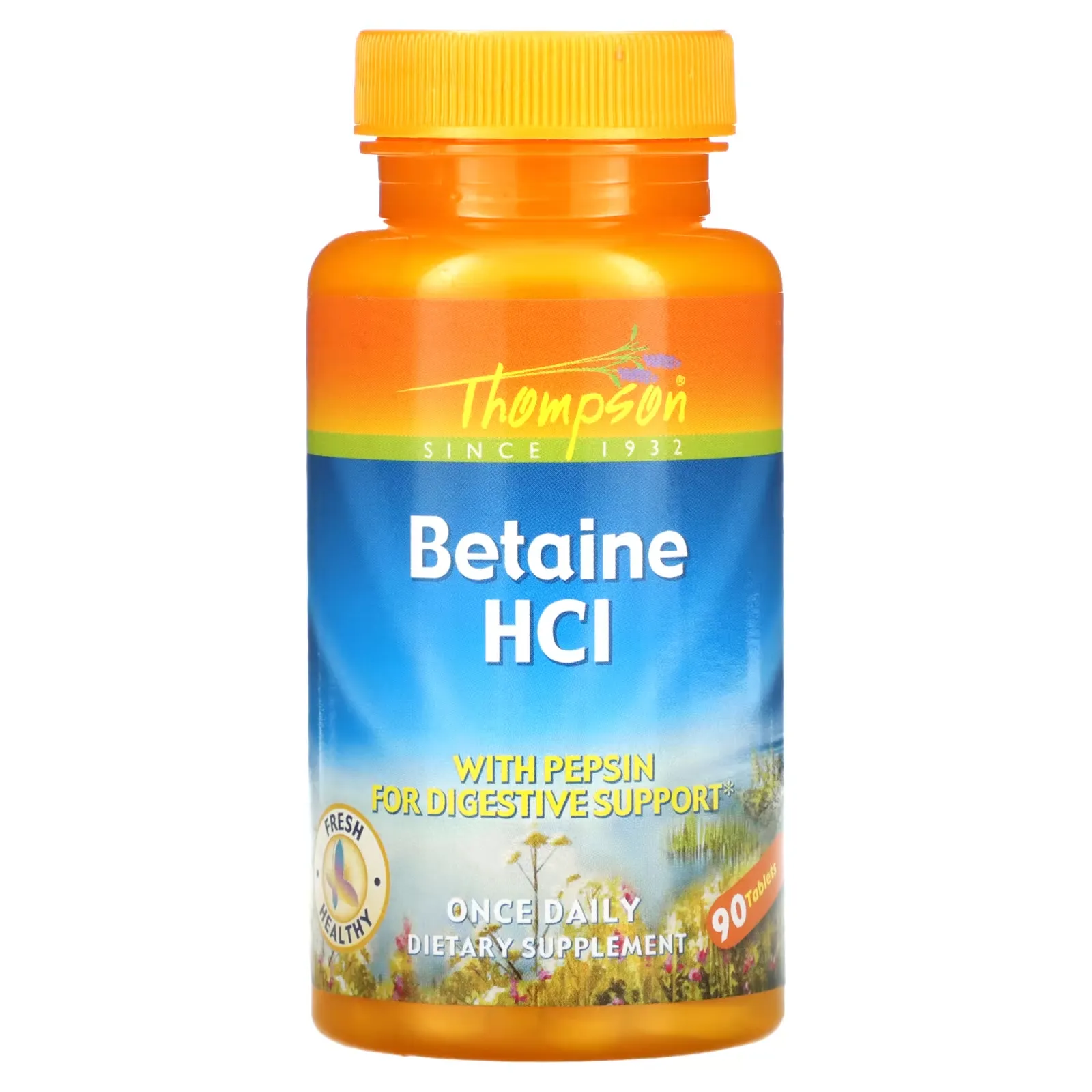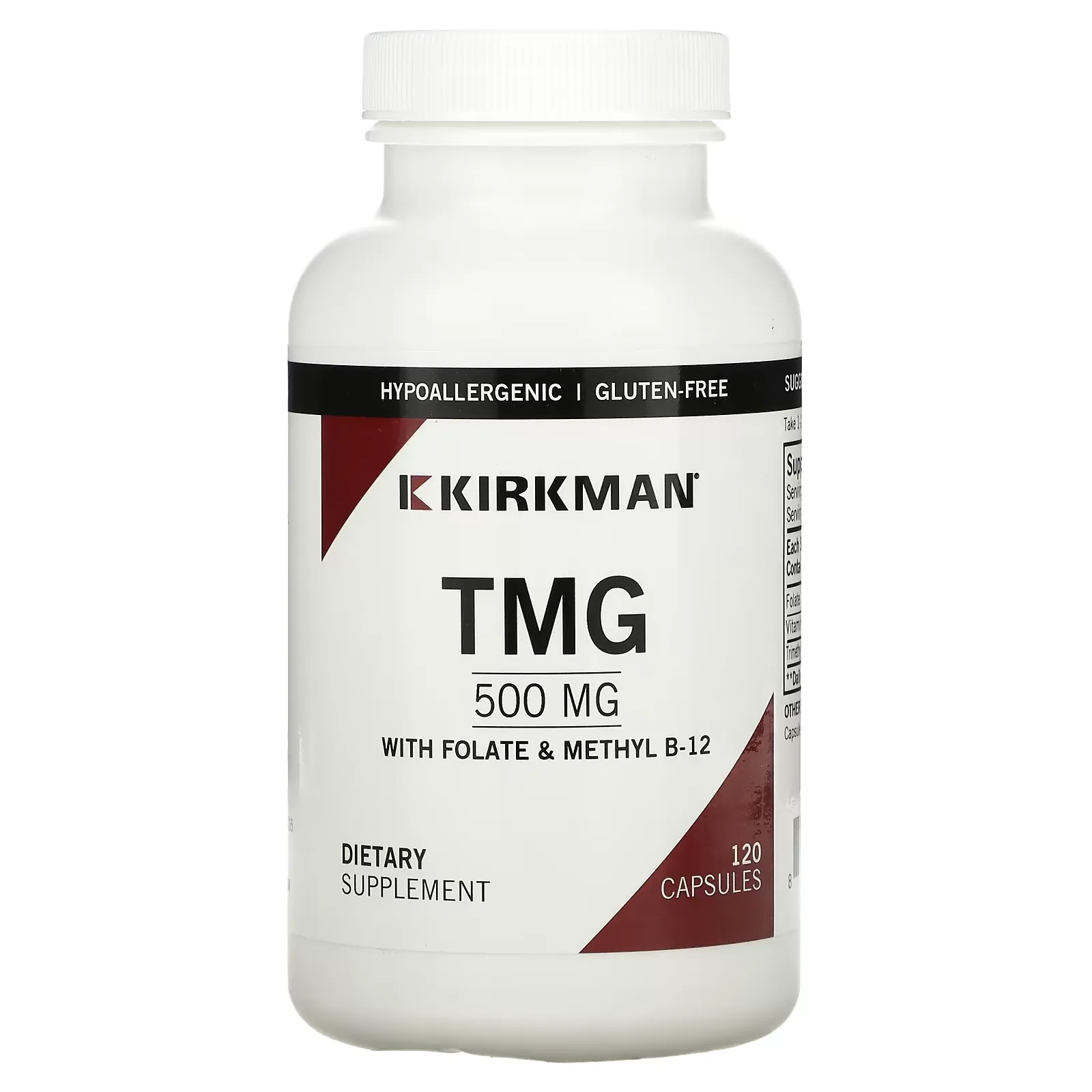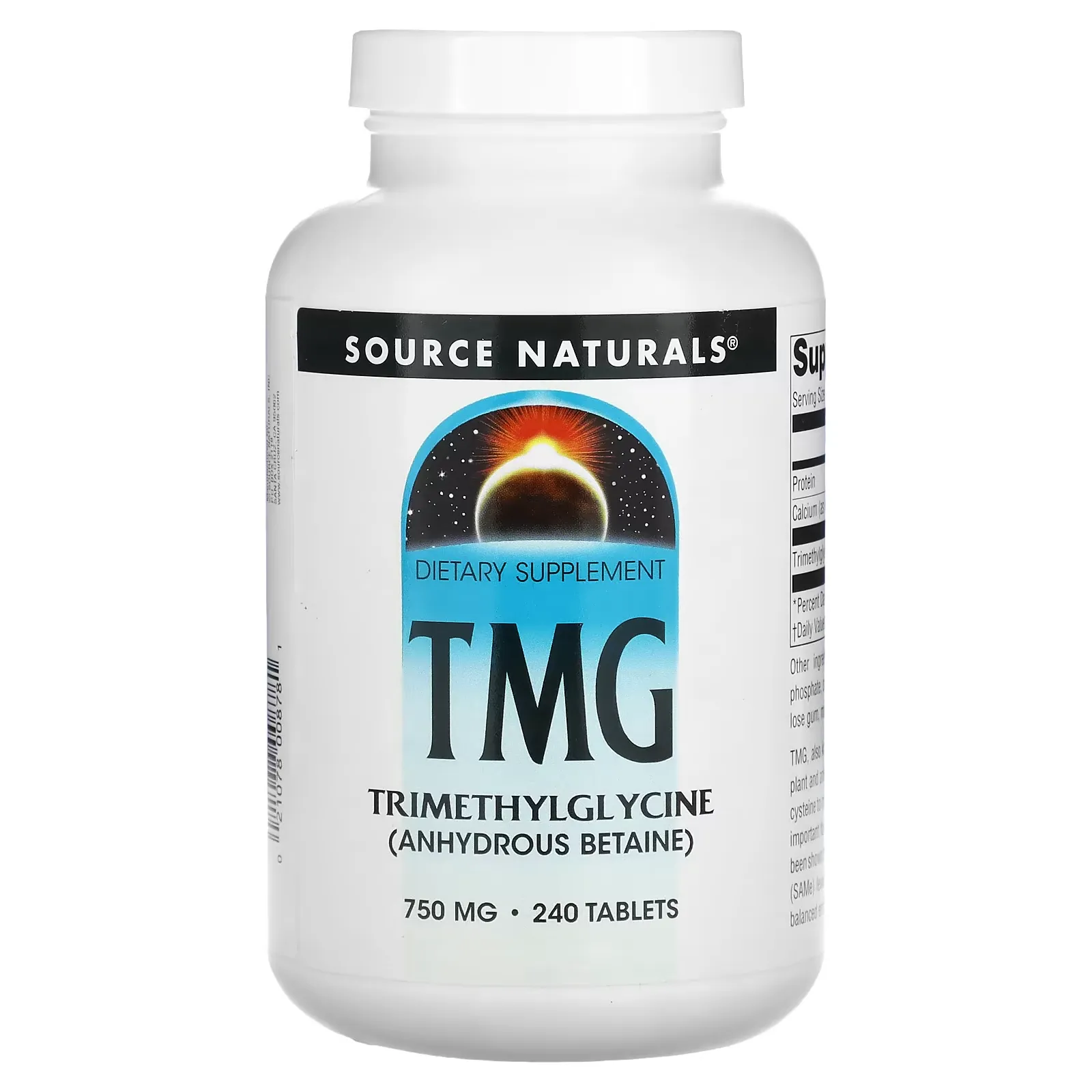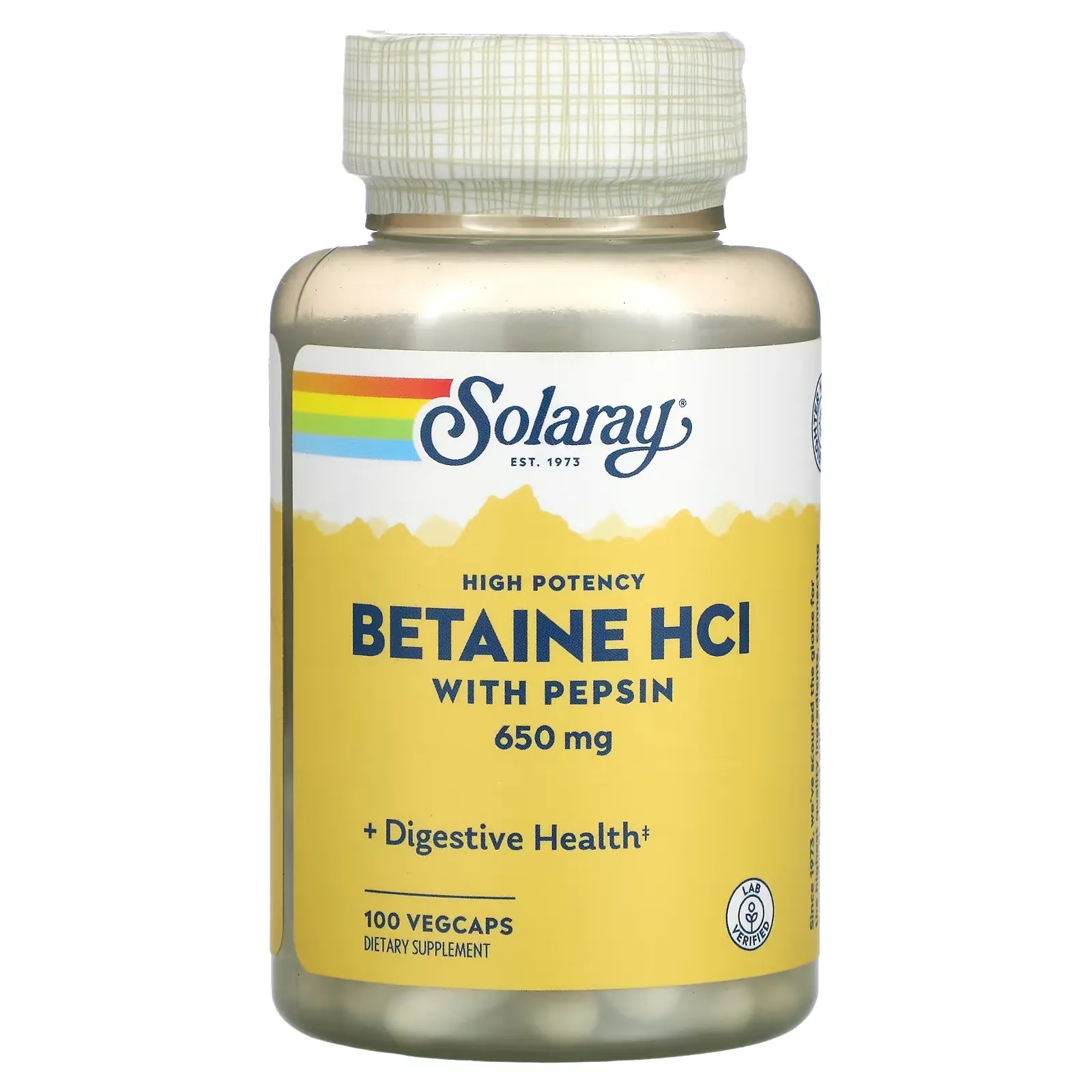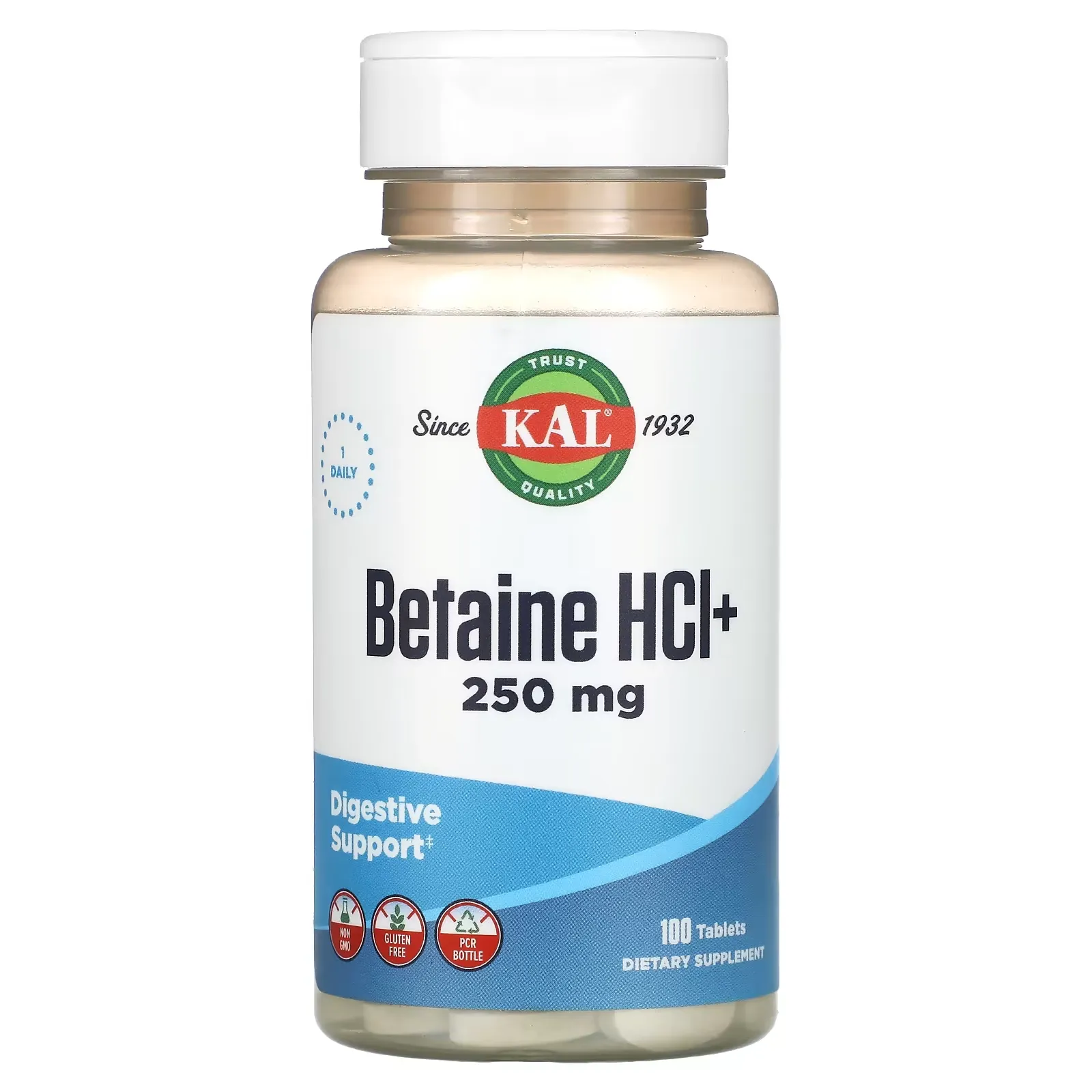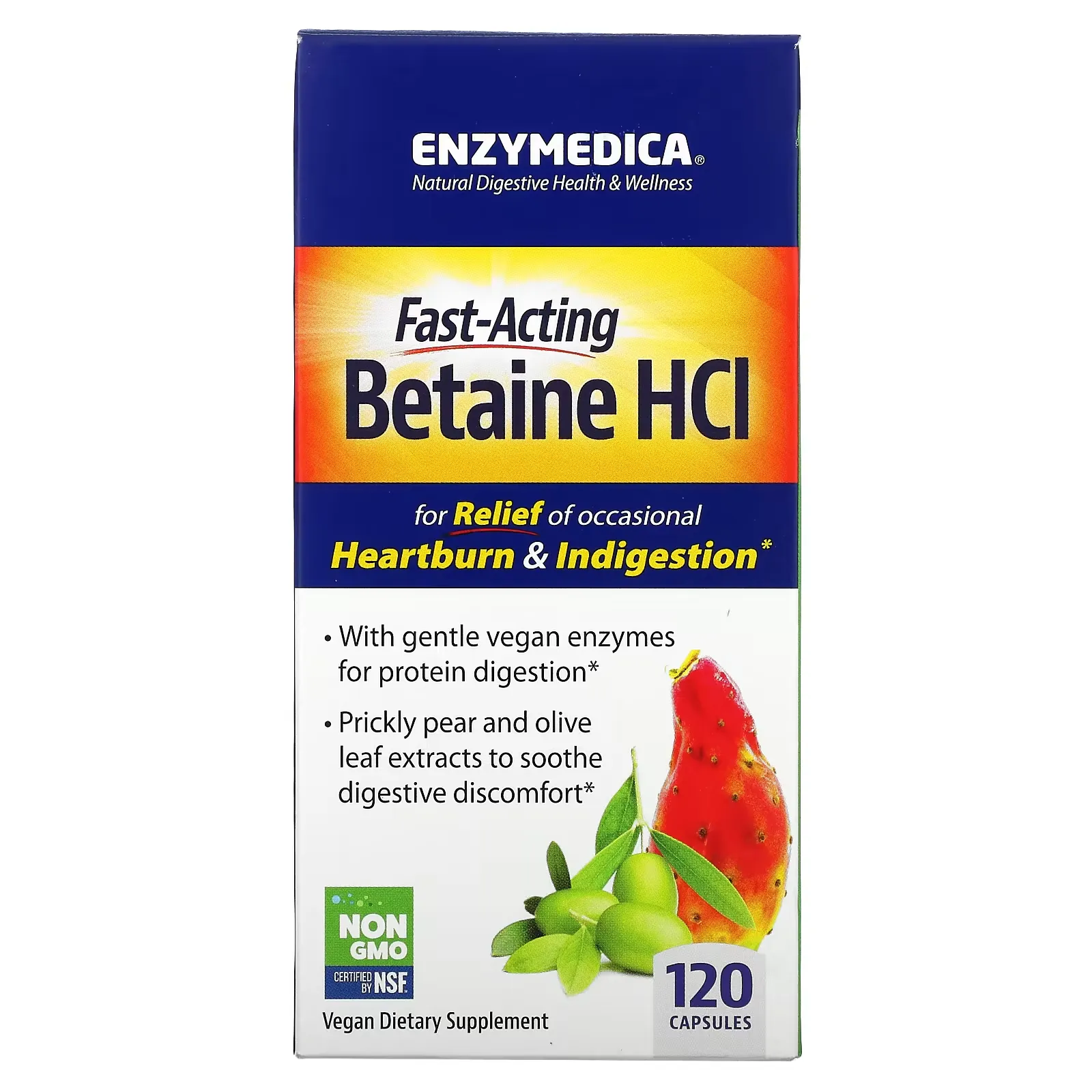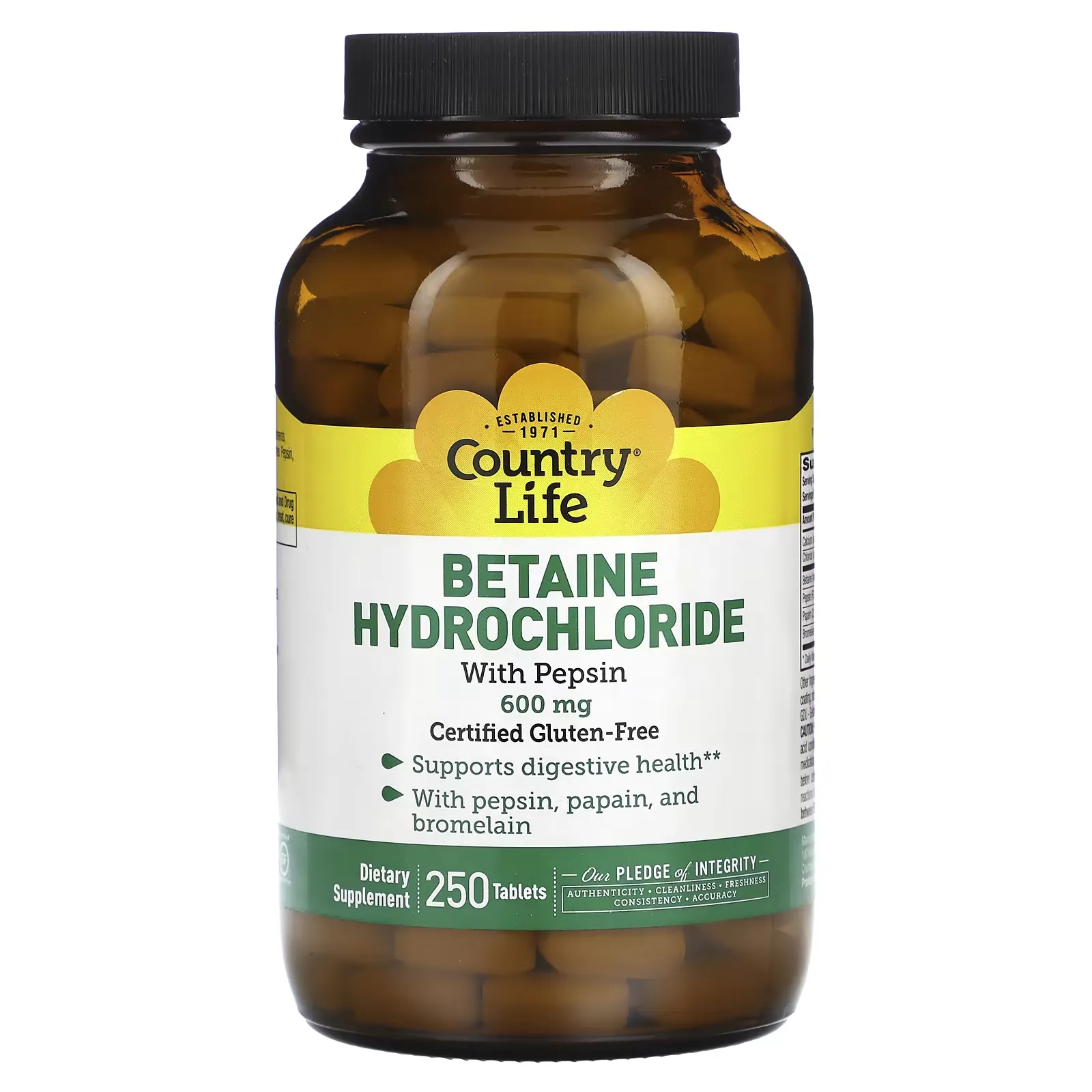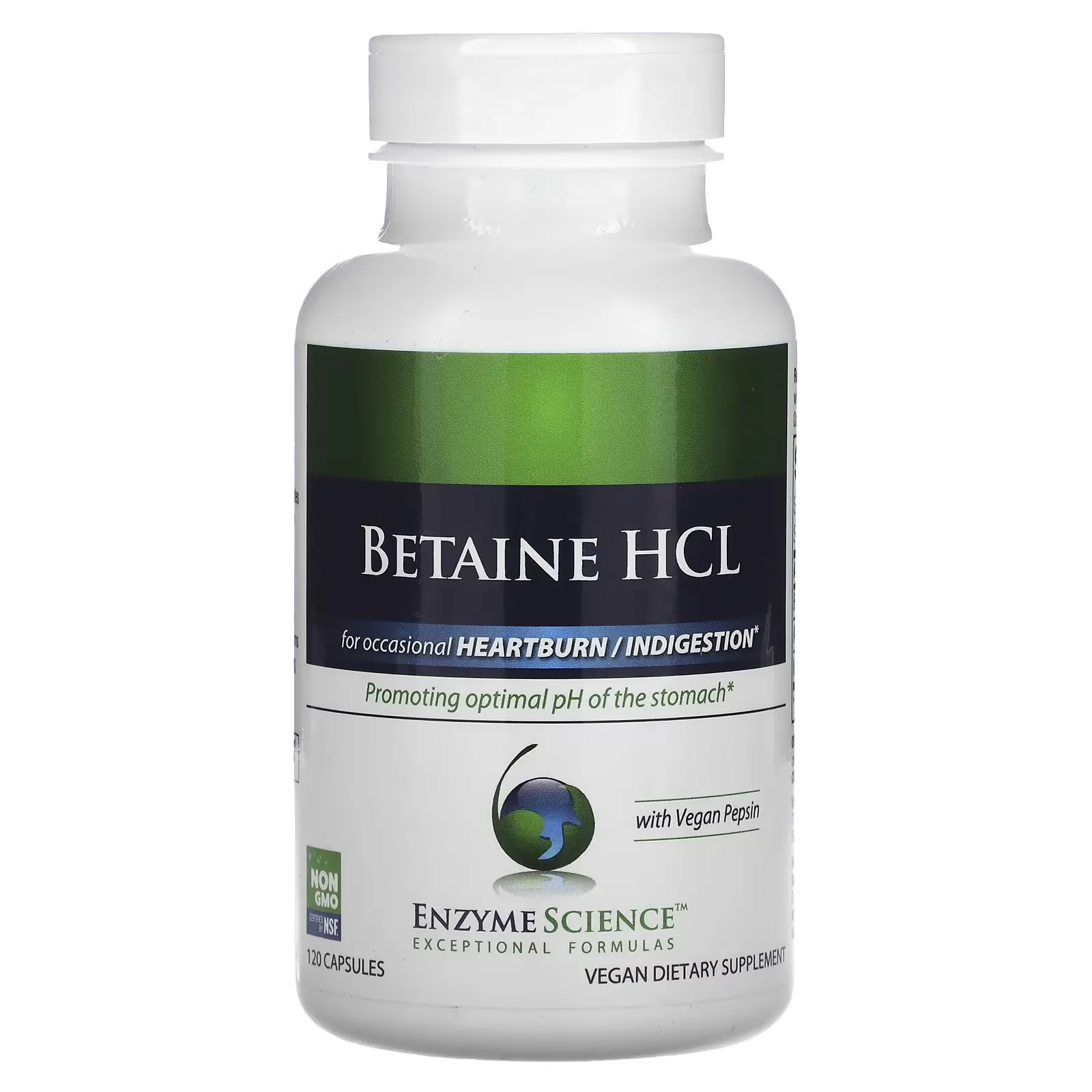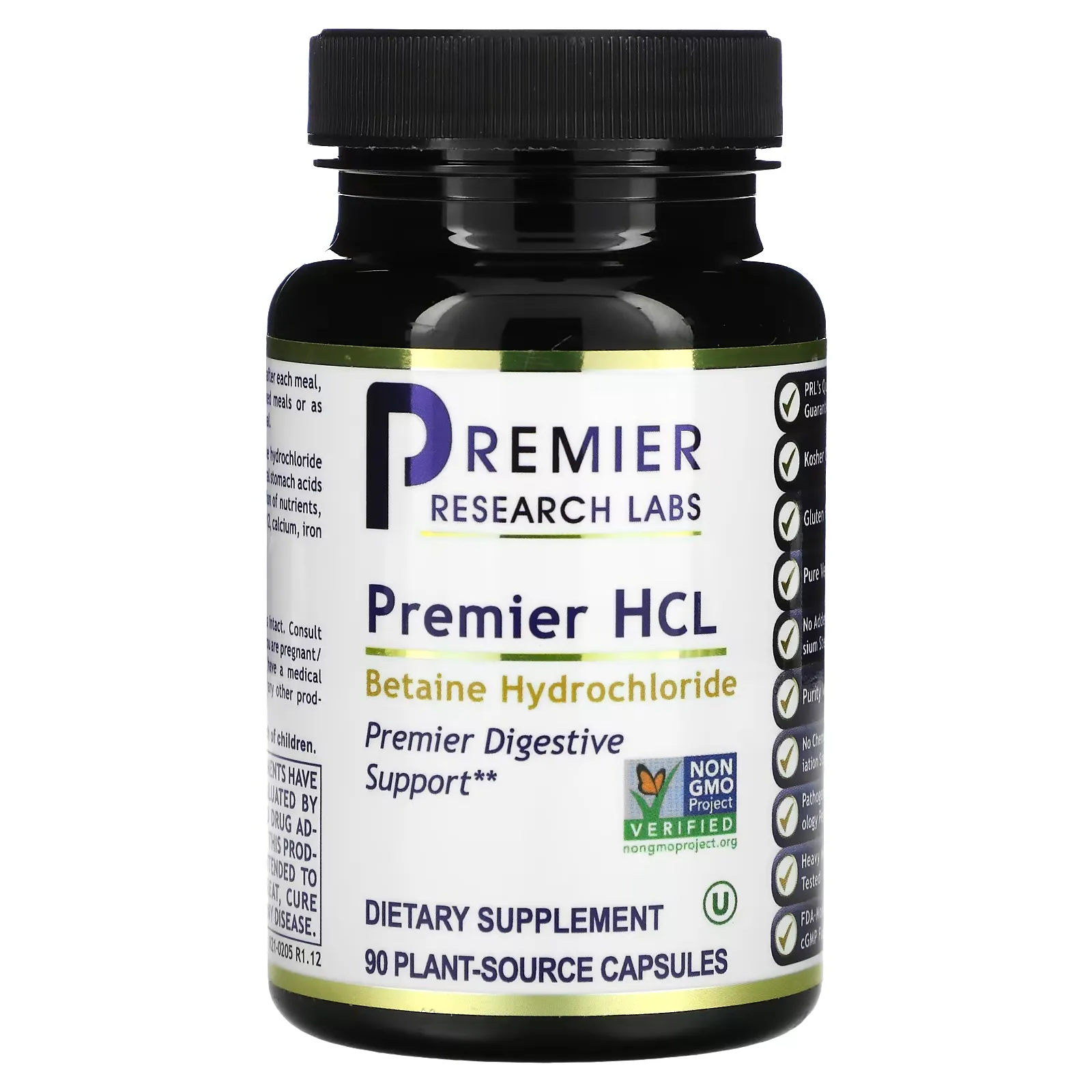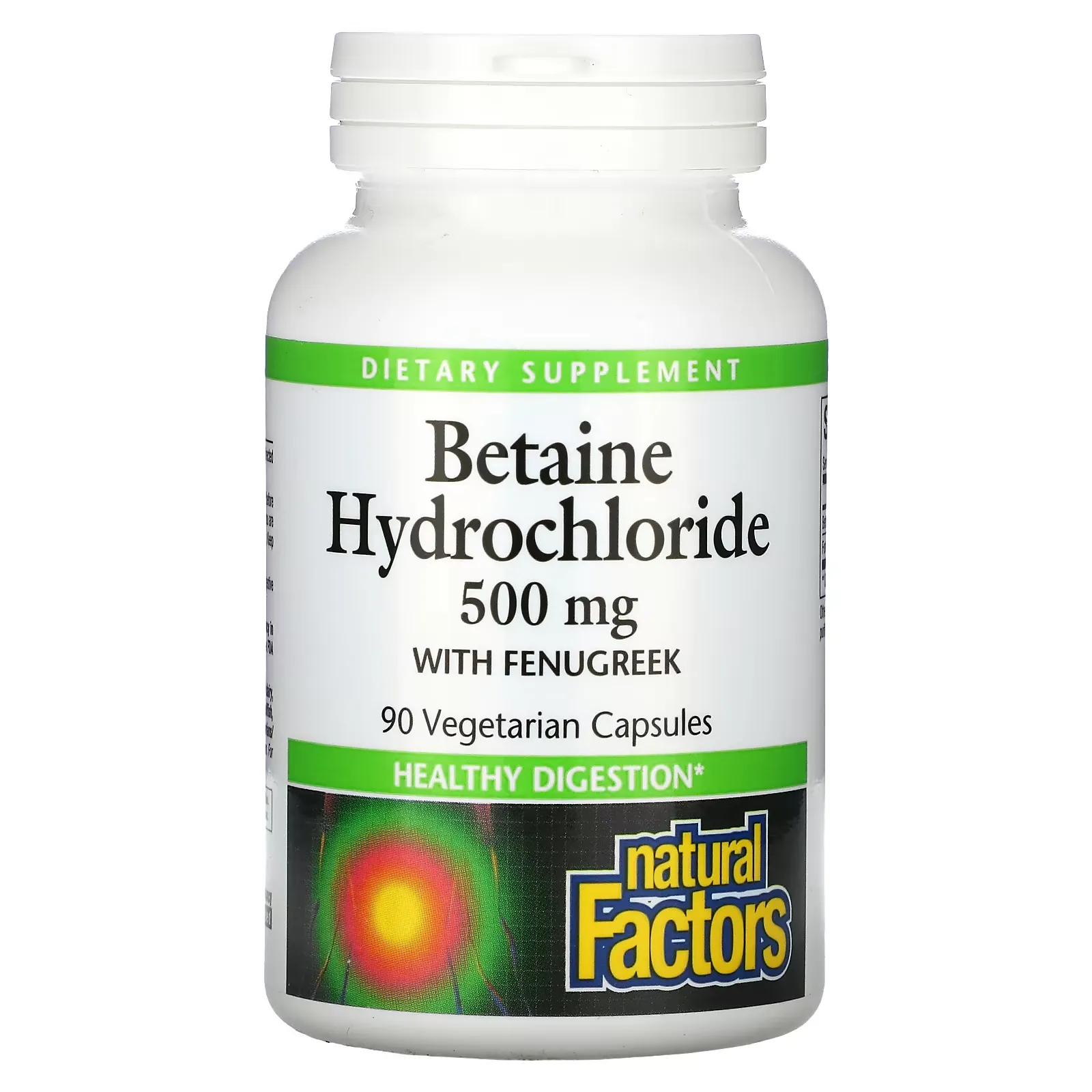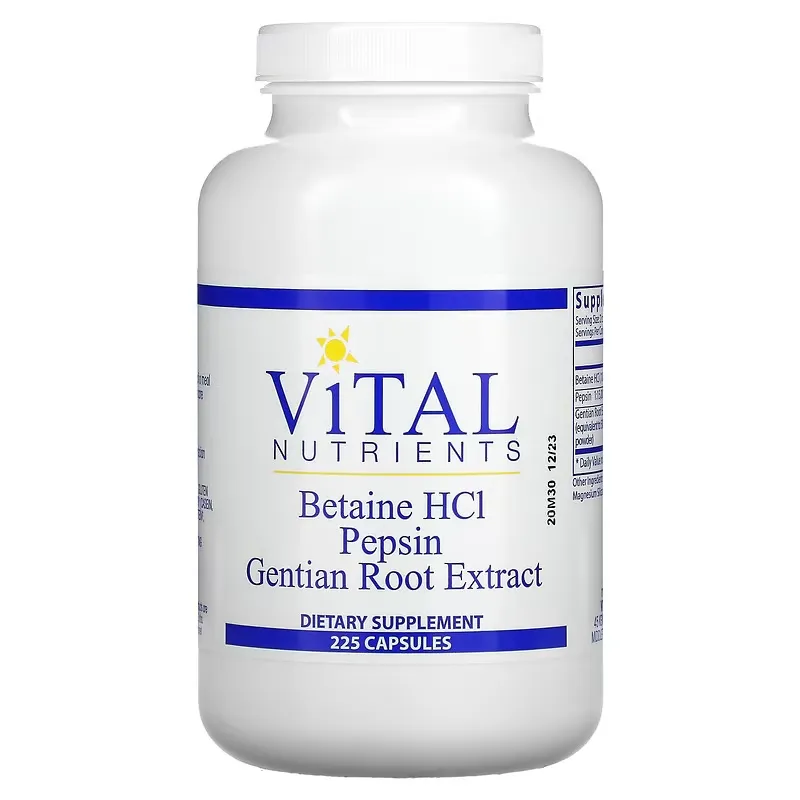Ingredients
Vegetarian capsule (hypromellose and water), magnesium stearate (plant based)
Free of: Milk, eggs, fish, shellfish, tree nuts, peanuts, wheat or soy.
Supplement Facts
| Supplement Facts | ||
| Serving Size: 1 Capsule | ||
| Servings Per Container: 120 | ||
| Each Serving Contains | Amount Per Serving | % Daily Value |
| Calcium (from Dicalcium Phosphate) | 41 mg | 3% |
| Phosphorus (from Dicalcium Phosphate) | 31 mg | 2% |
| Trimethylglycine (Betaine) | 500 mg | ** |
| ** Daily Value Not Established | ||
Warnings
Store in a cool dry place and tightly capped.
Keep out of the reach of children.
Dimensions
dimensions: 2.3 x 2.3 x 4.3 indimensionsIn: 2.3 x 2.3 x 4.3 in
dimensionsCm: 5.8 x 5.8 x 10.9 cm
Weight
weight: 0.25 lbweightLb: 0.25 lb
weightKg: 0.11 kg
- Gluten Free
- Hypoallergenic
- Dietary Supplement
- Ultra Tested
- cGMP Certified
Ultra Tested - Tested for More than 950 Contaminants! Heavy Metals - Bacteria - Yeast - Mold - Pesticides &; More...
Originally formulated for physicians use with higher potencies than Kirkman’s other TMG products. Supports the methylation pathway and serotonin levels. Hypoallergenic. Gluten and casein free. Capsules are plant based. Ultra Tested®.
Trimethylglycine (TMG) is a more active “methyl donor” than DMG because it has an additional methyl group in its chemical structure. It is used to convert homocysteine to methionine.
TMG is found in a variety of plant and animal sources. Kirkman’s TMG derives from beets.
Methyl donors can help in the production of several brain chemicals. Some of the methicone from TMG is converted into SAMe (S-adenosylmethionine), which can help maintain healthy serotonin levels in the body that may support mood, energy, concentration and a feeling of well-being.
Folic acid intake and levels in the body must be adequate for TMG to work biochemically. In some individuals, the use of natural folinic acid may be more beneficial than folic acid because folinic acid already has attached four hydrogen atoms and one methyl group, thereby short cutting the complicated biochemical processes that assist purine and nucleotide synthesis. These processes are very important in cell perception and response.

